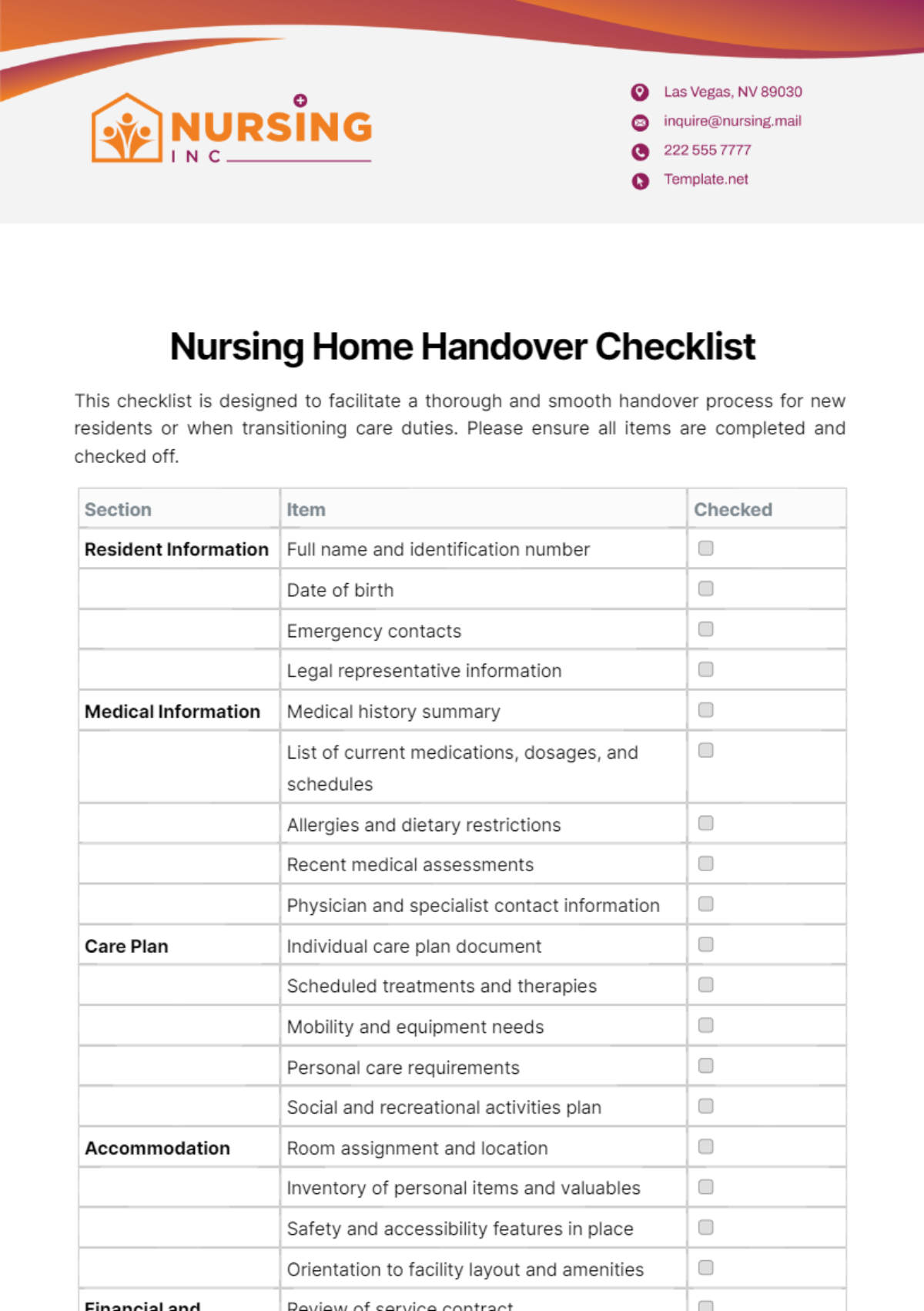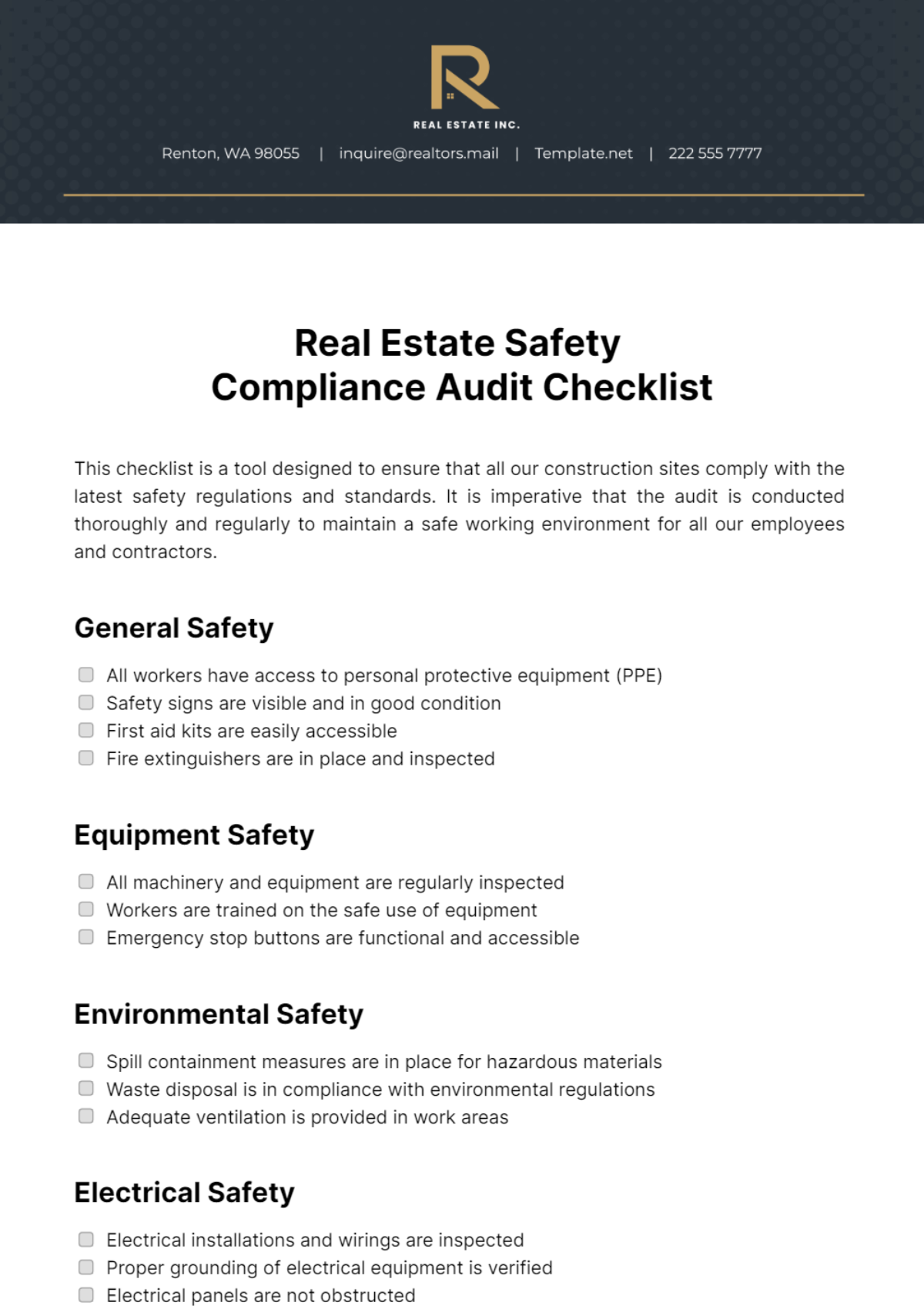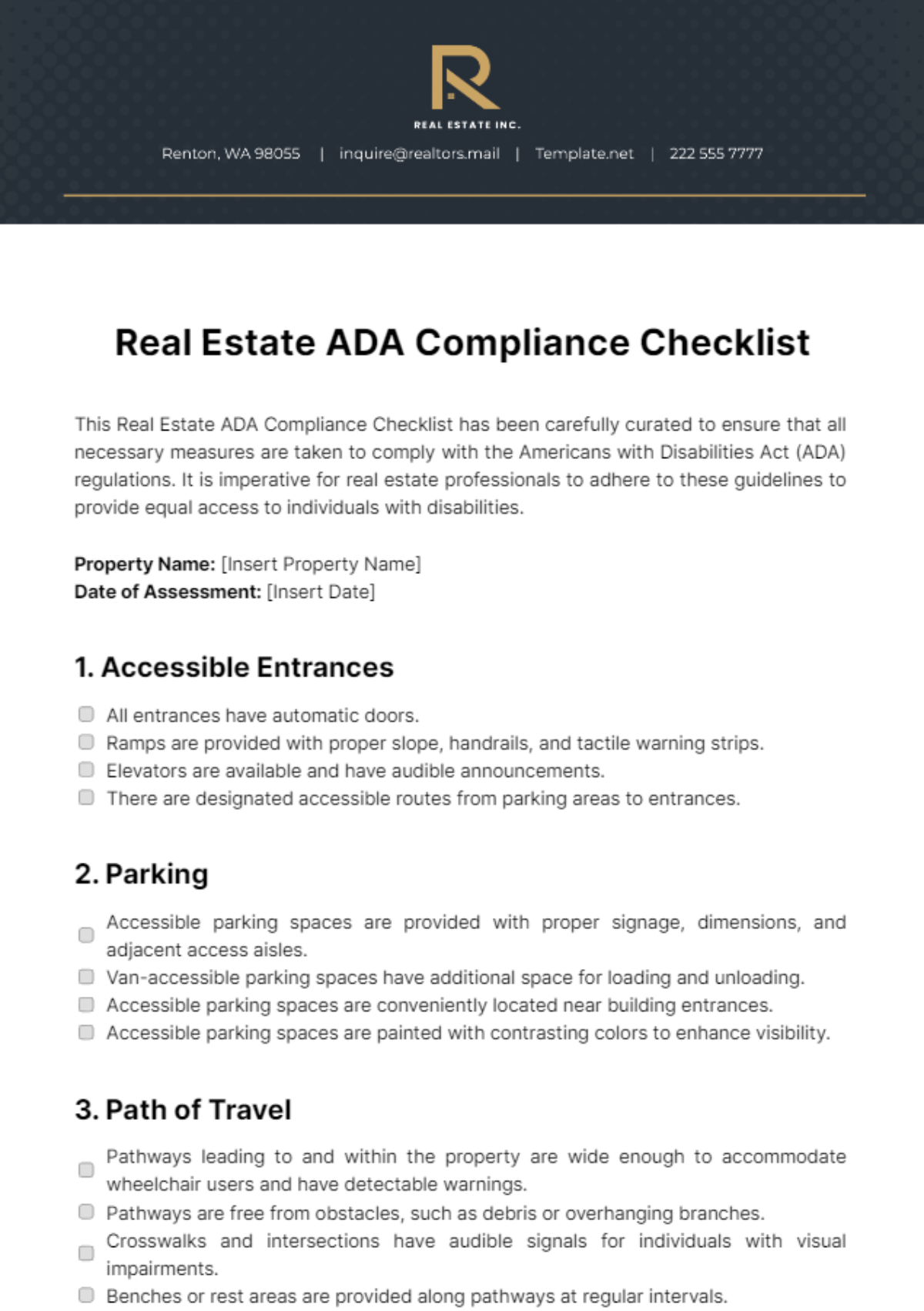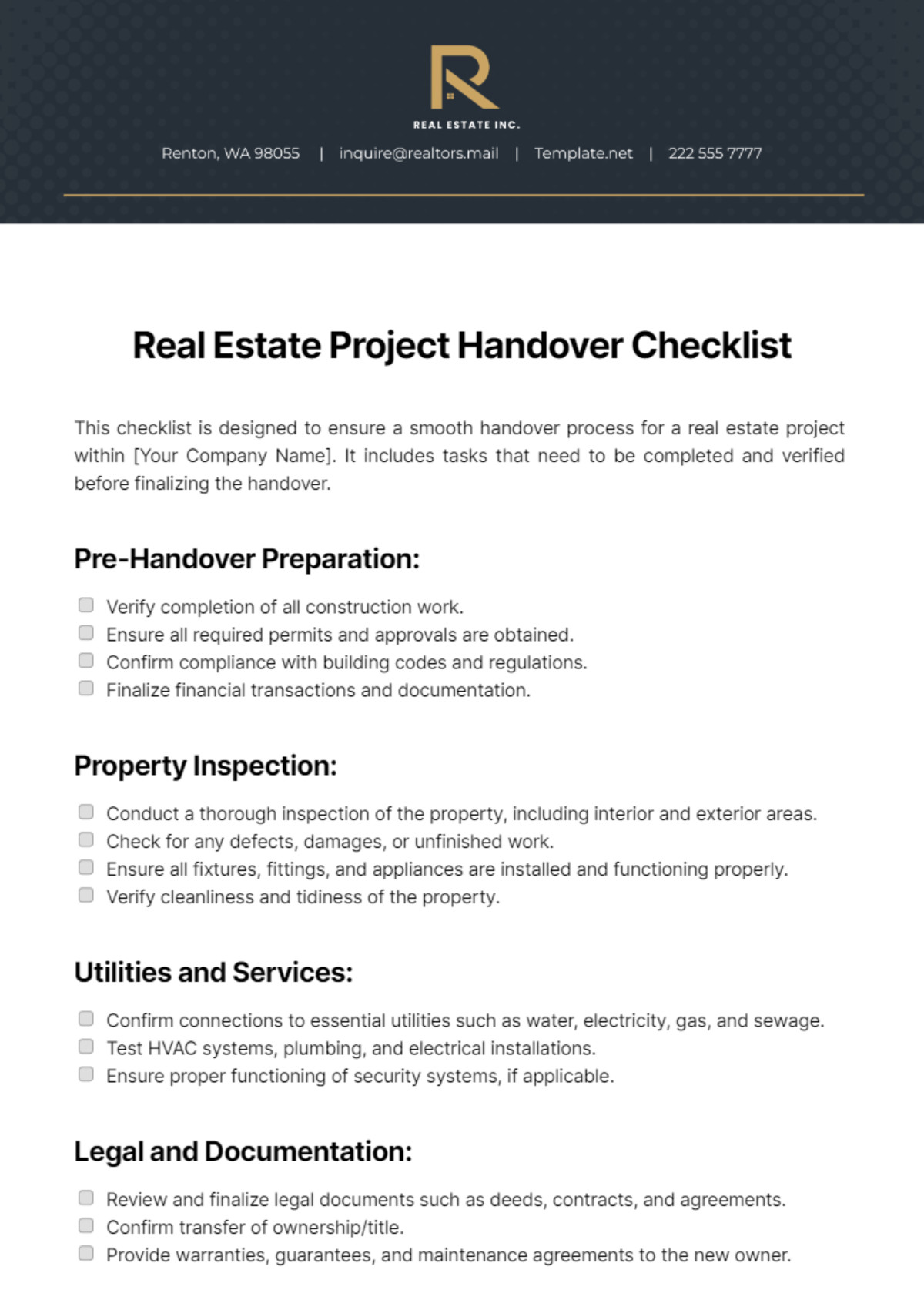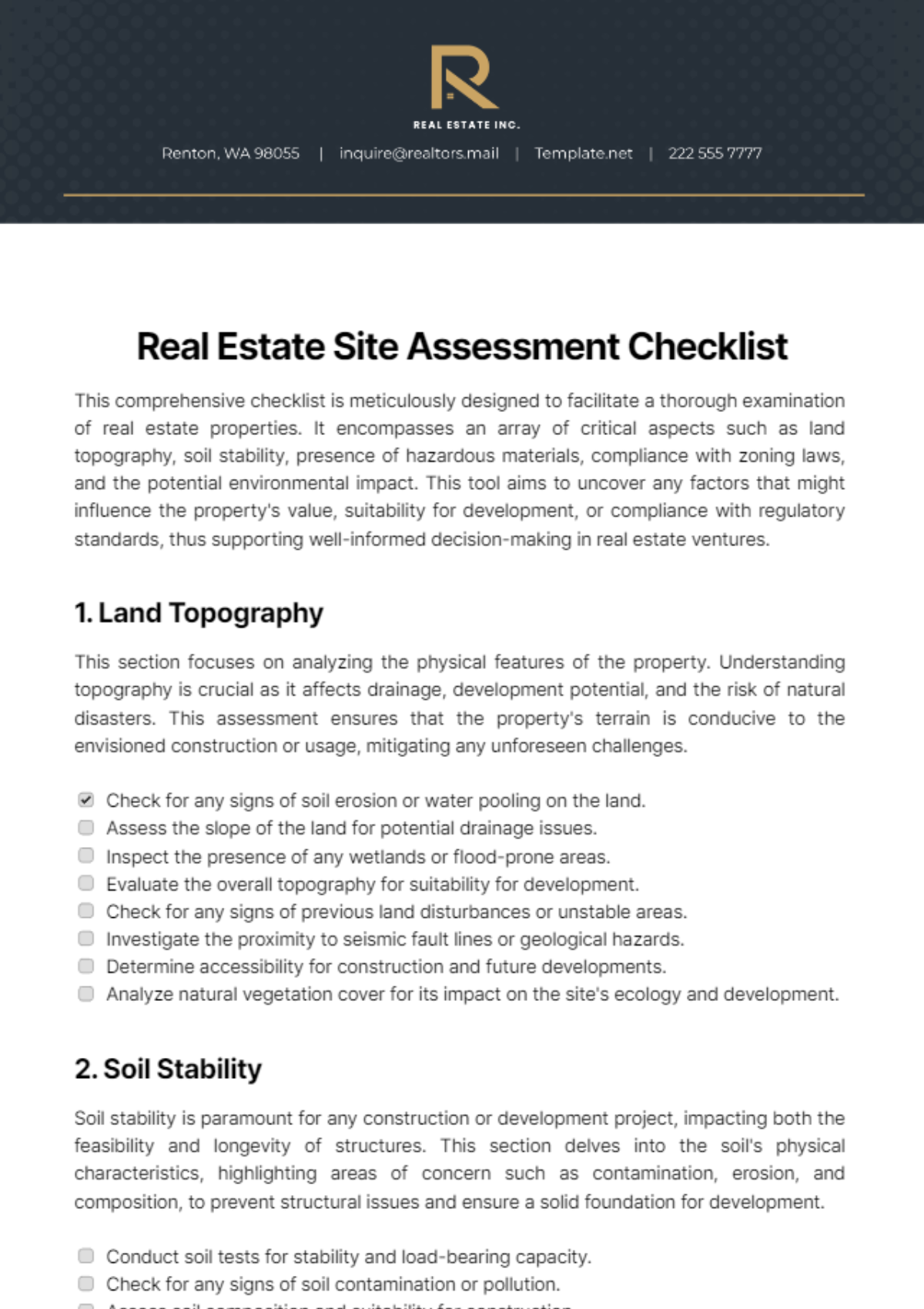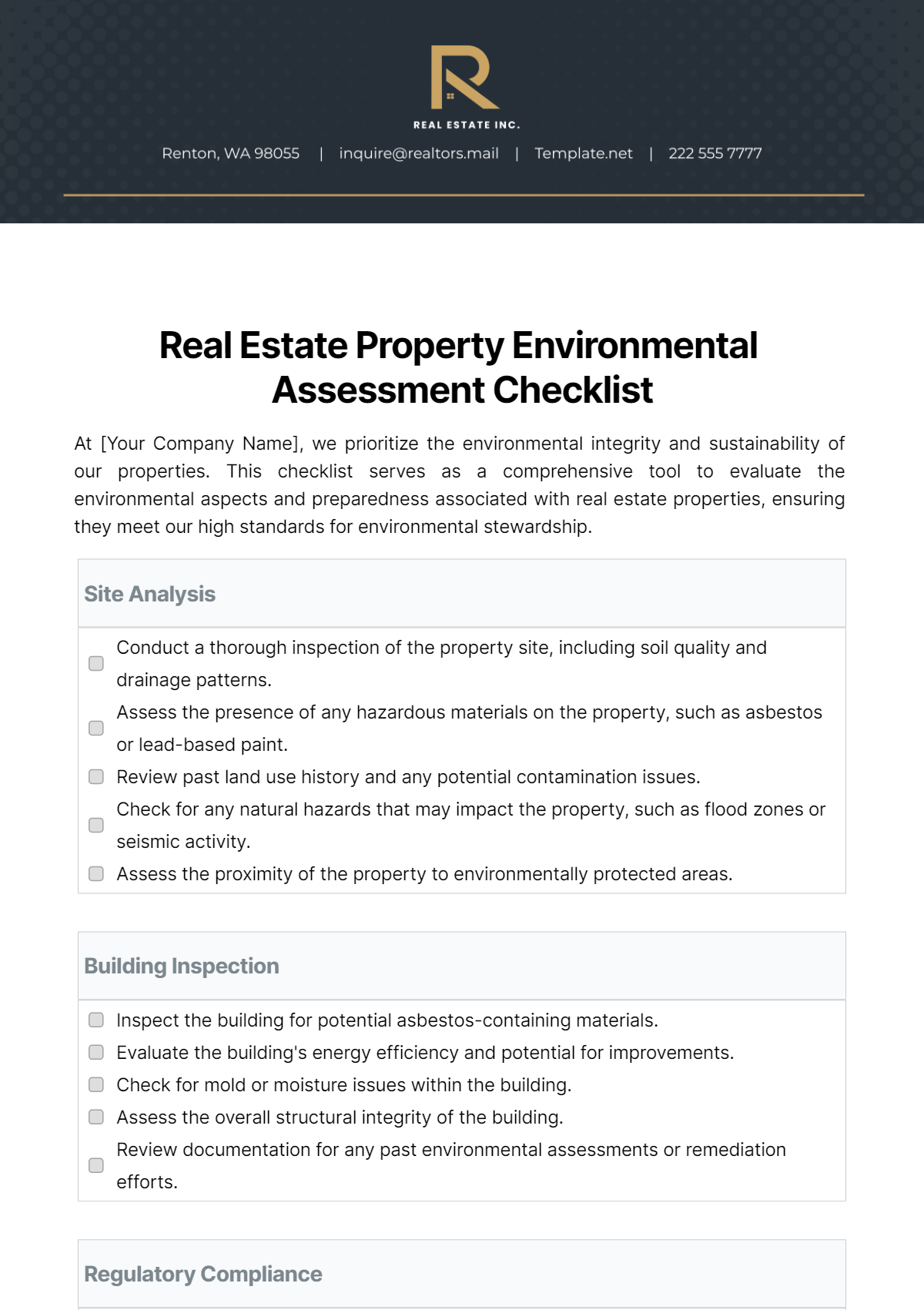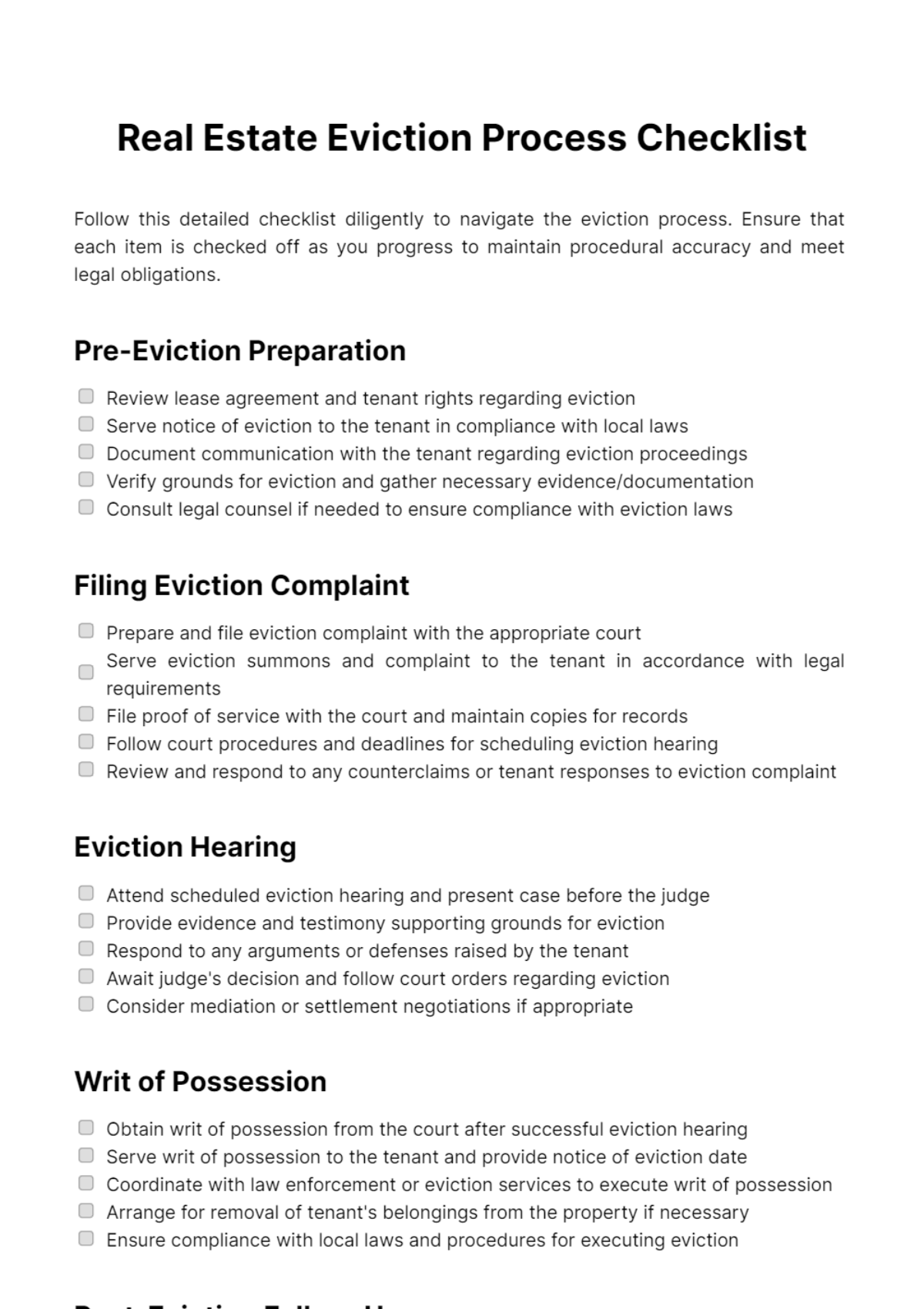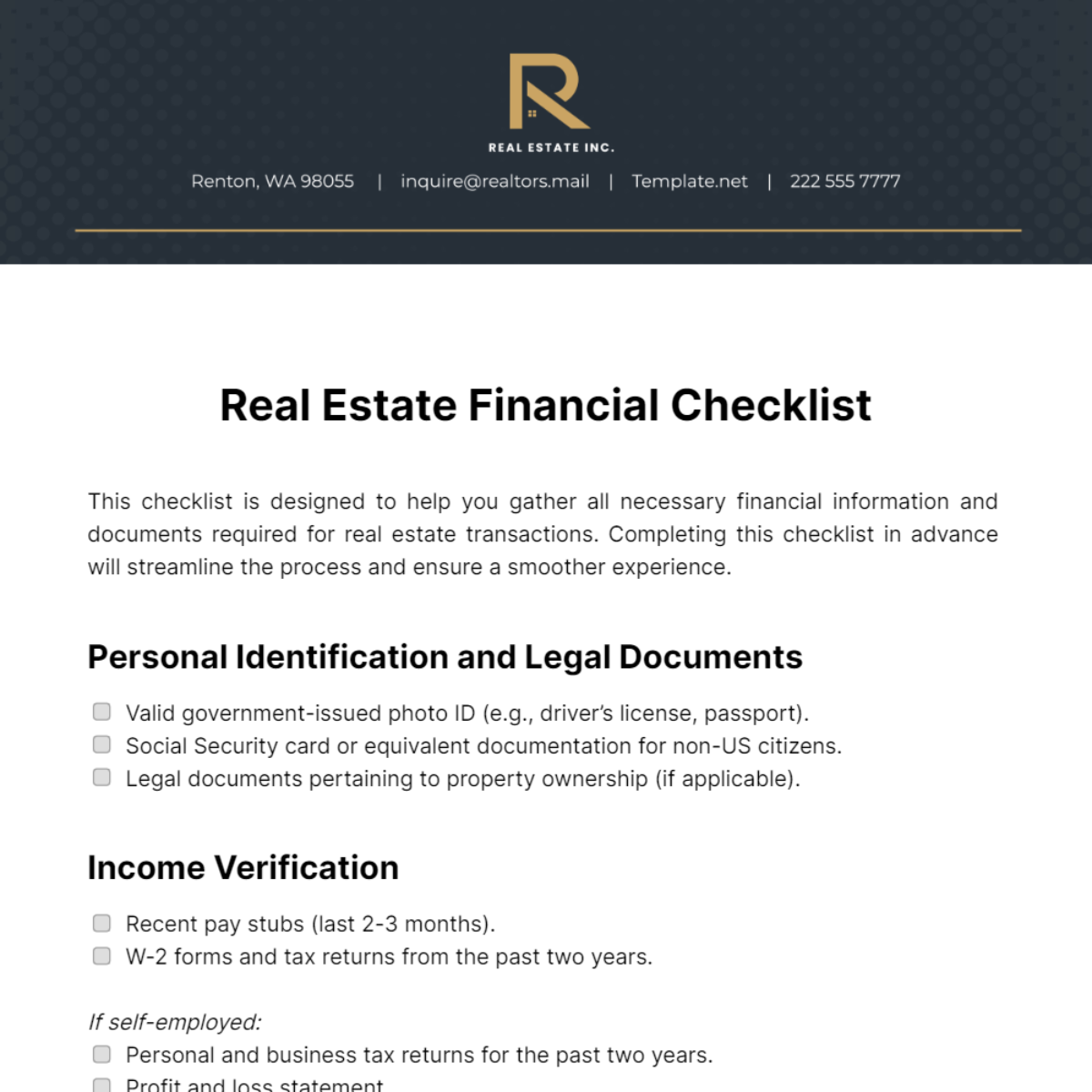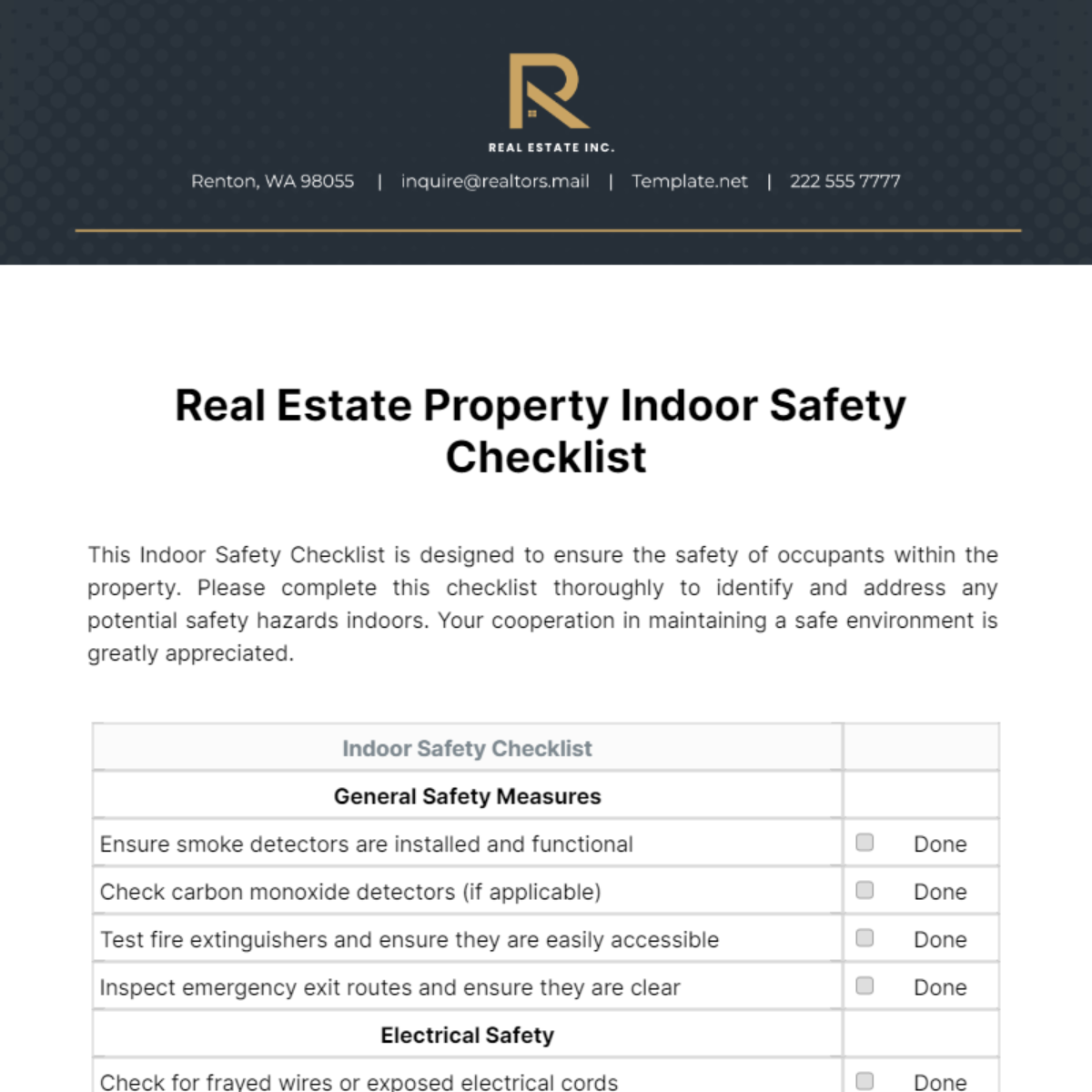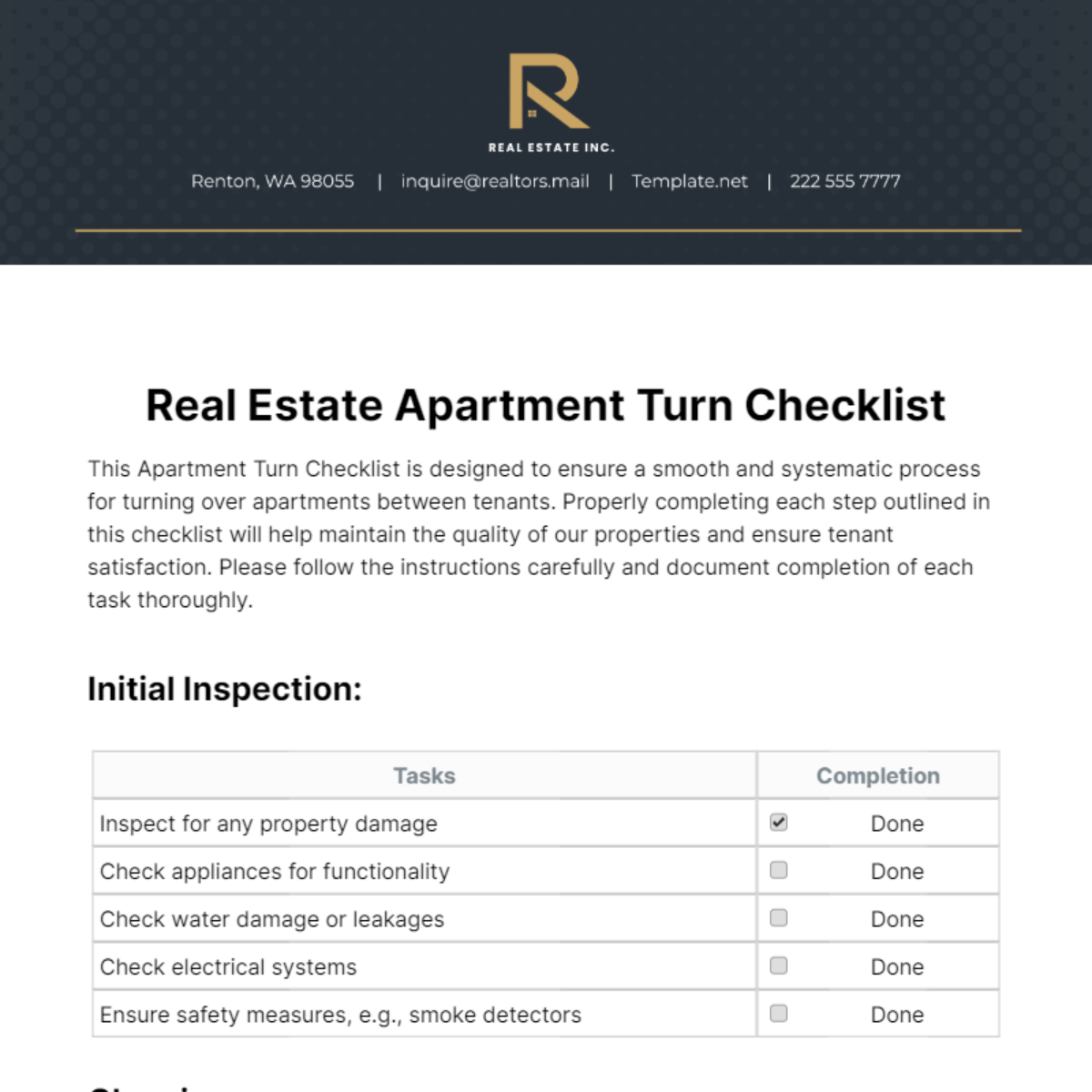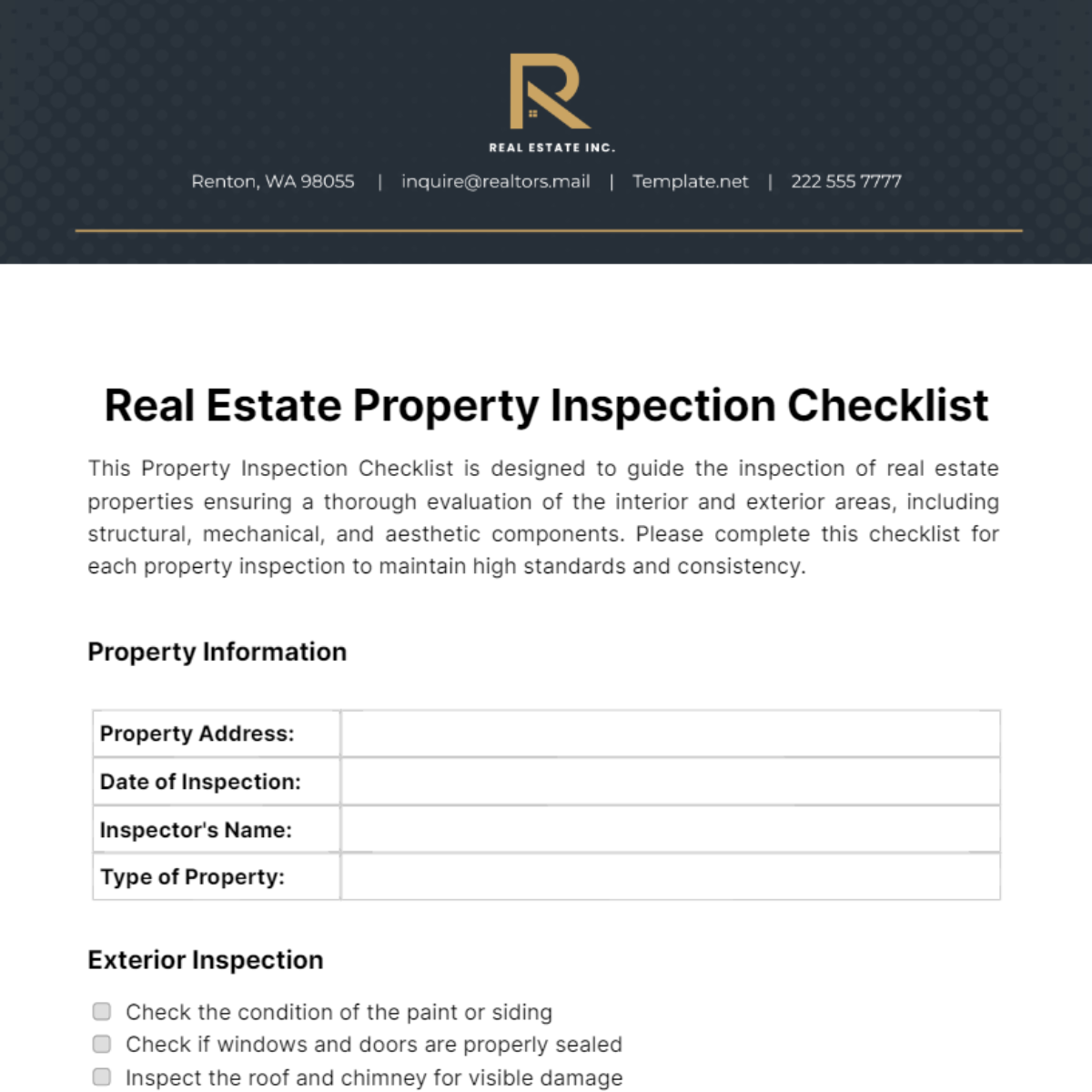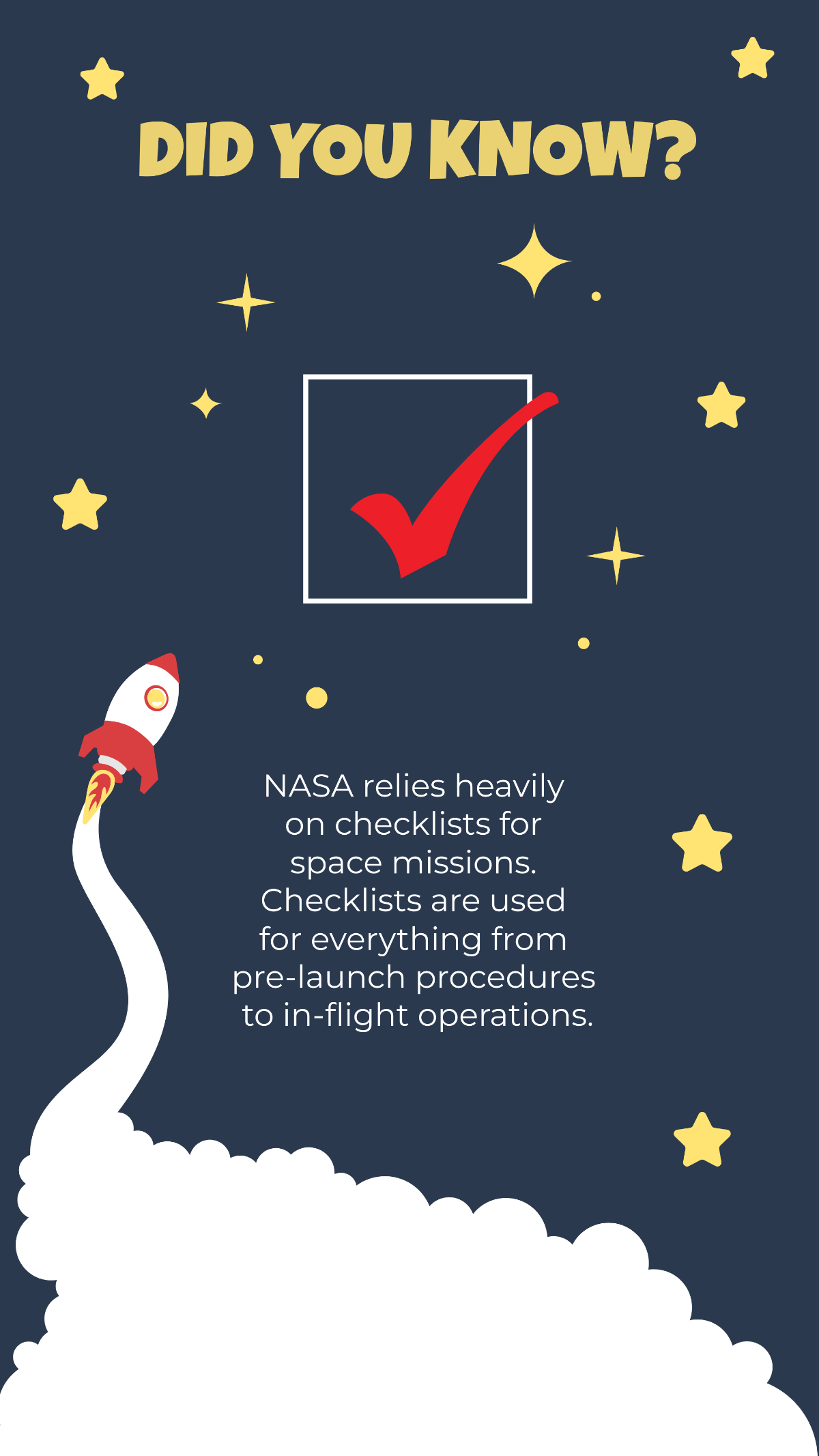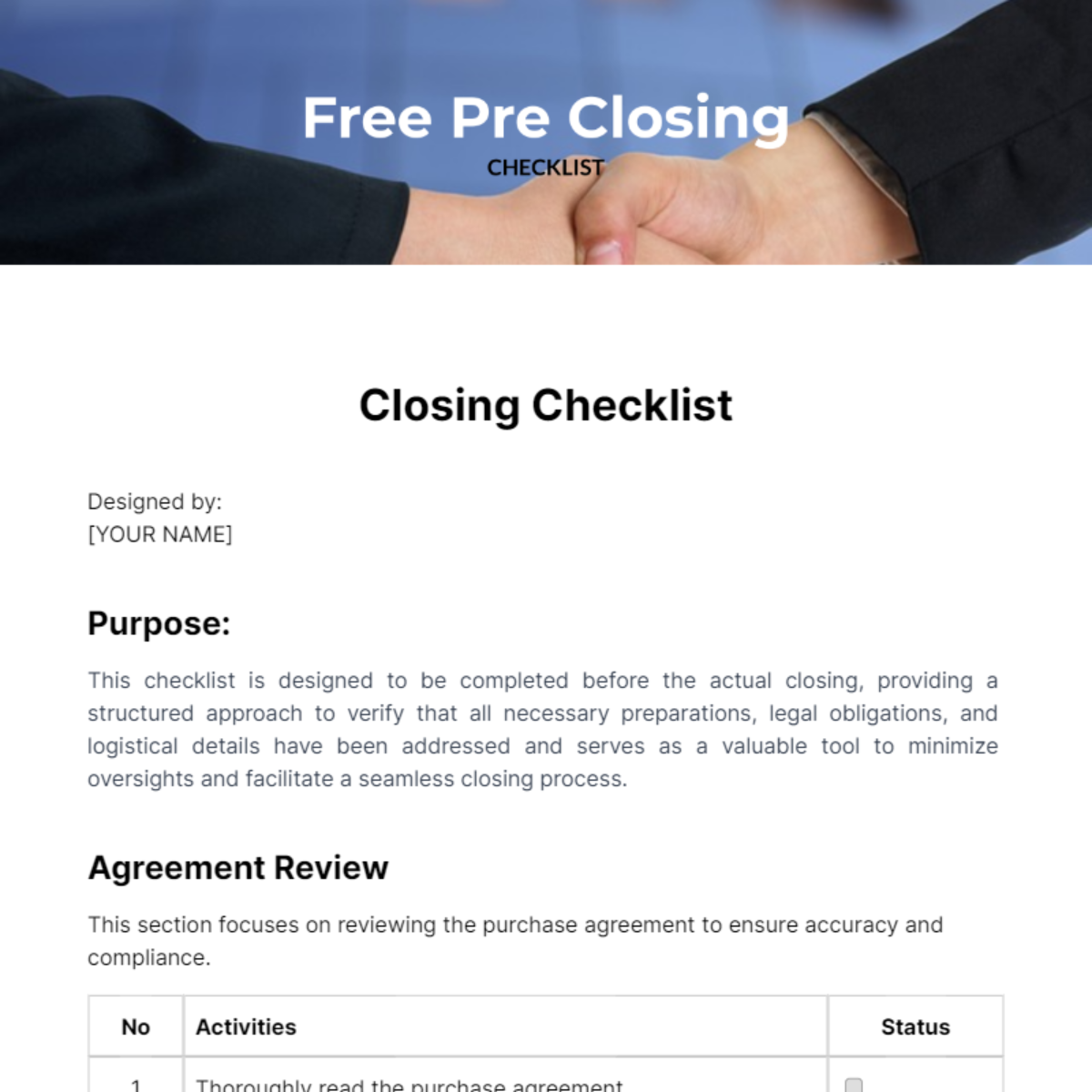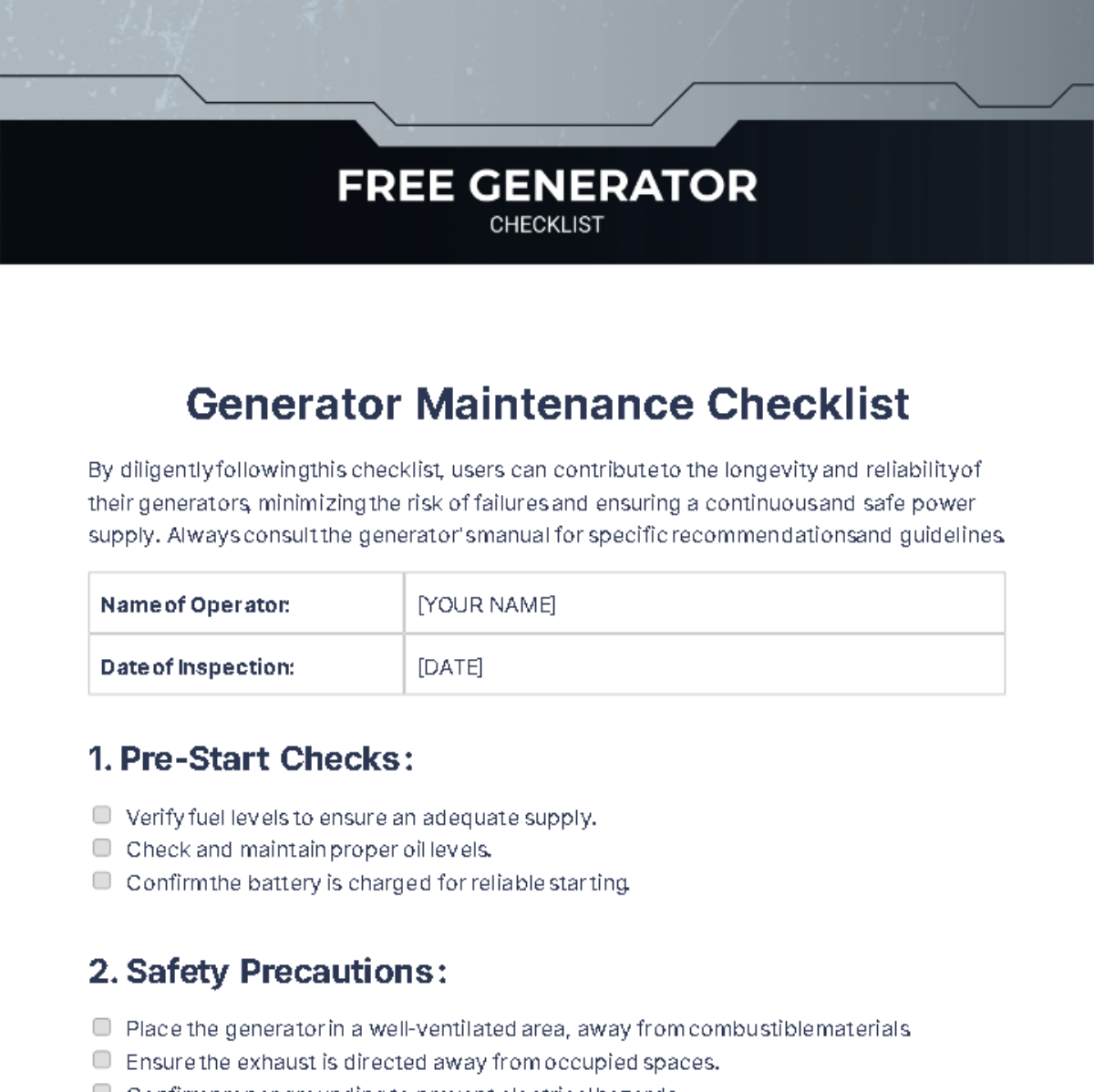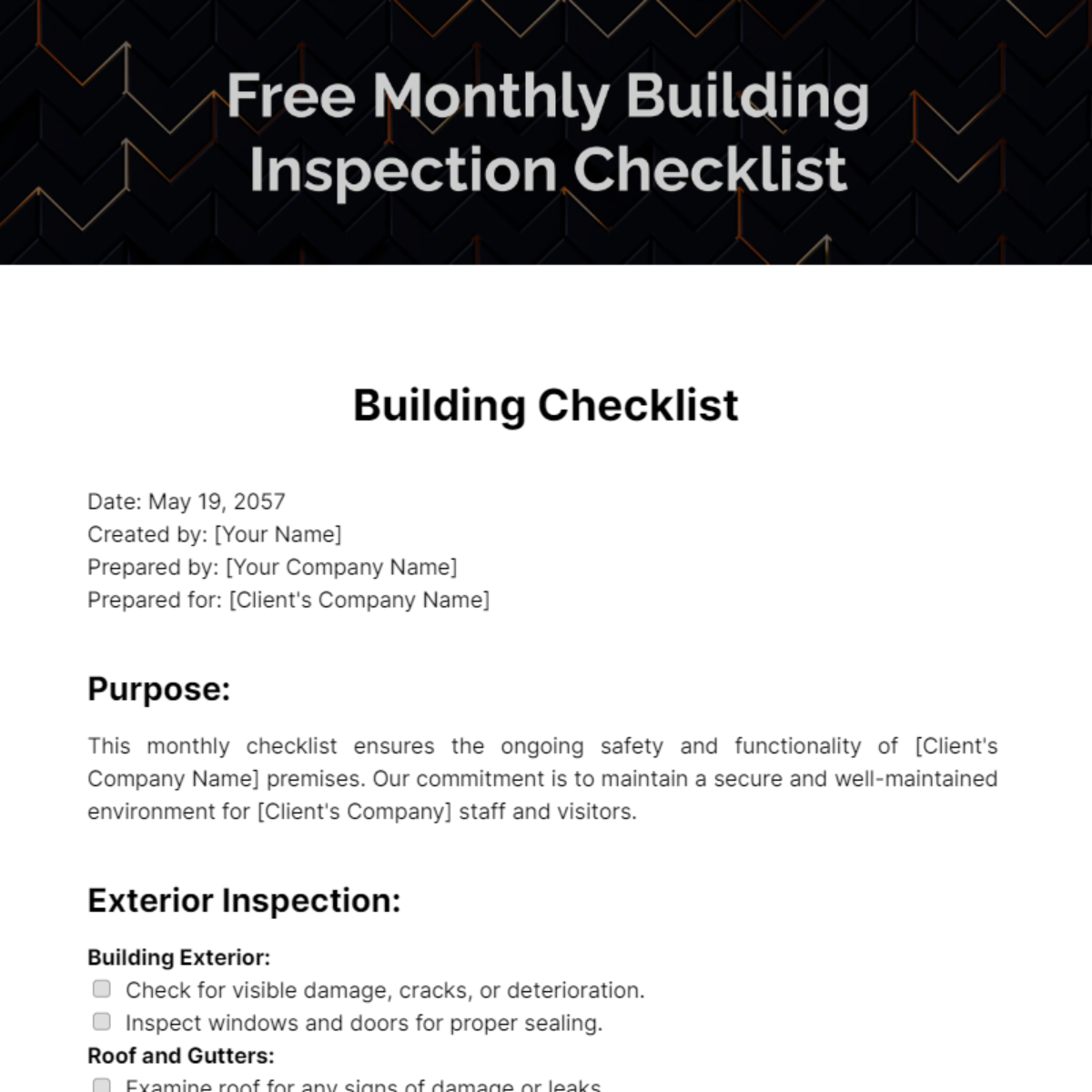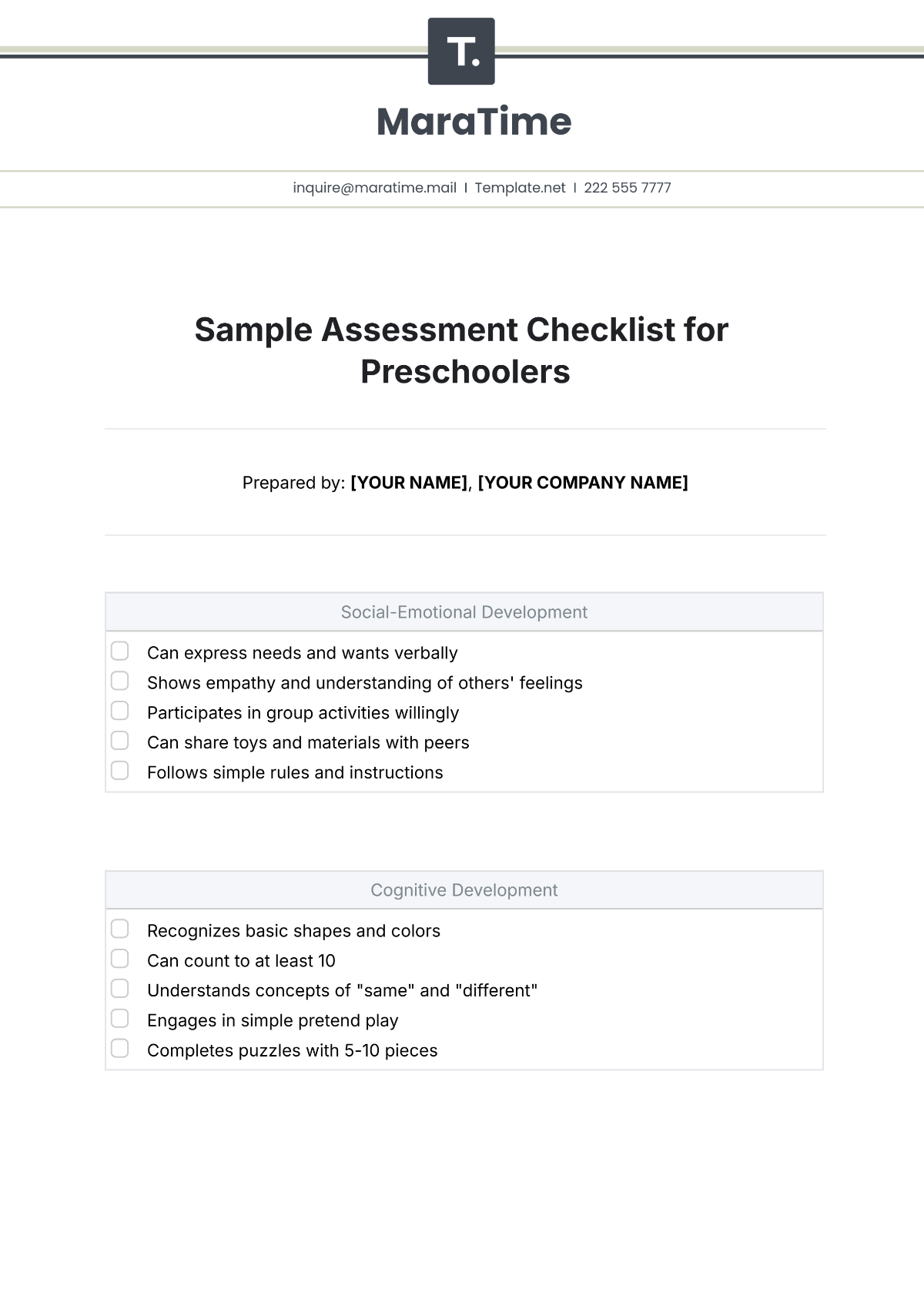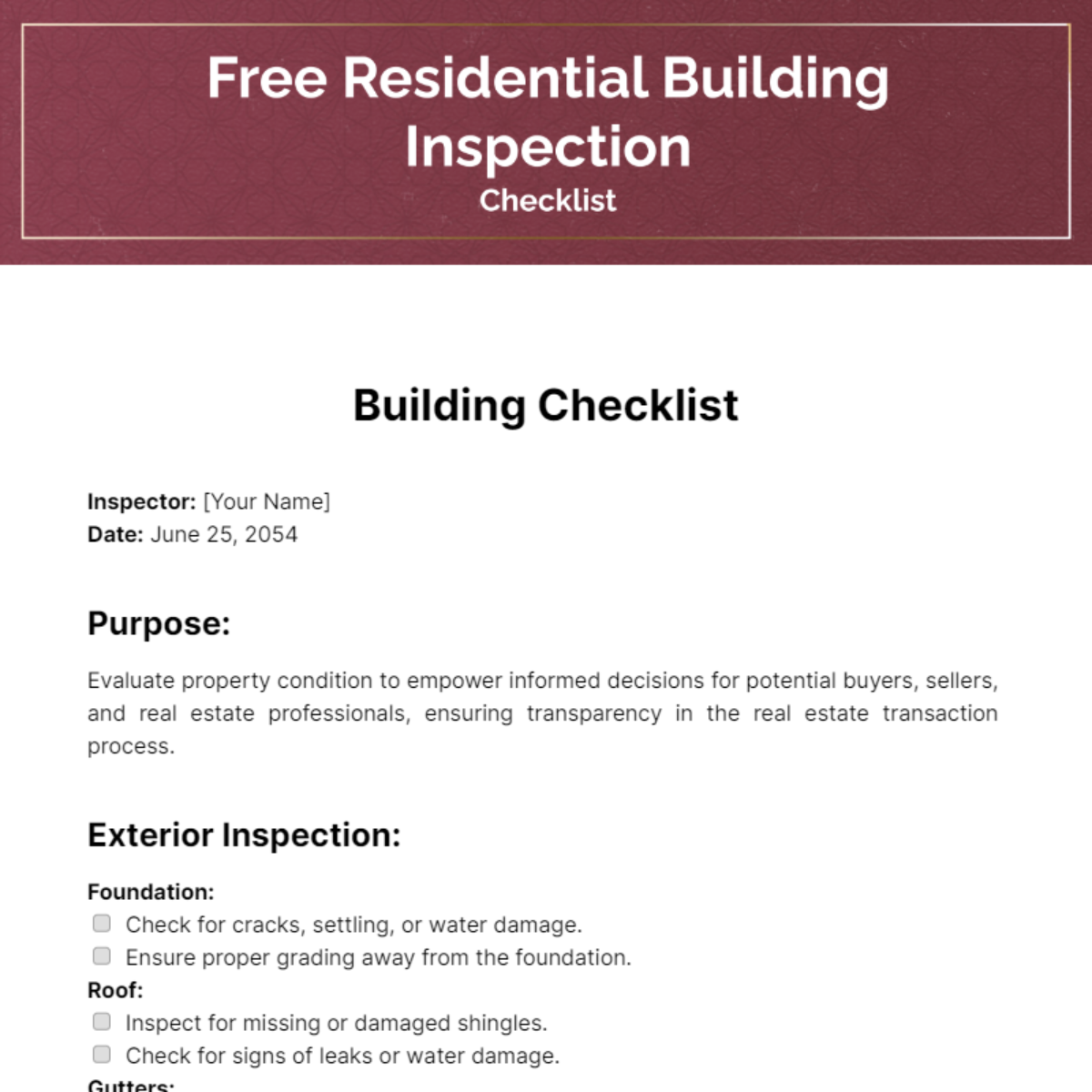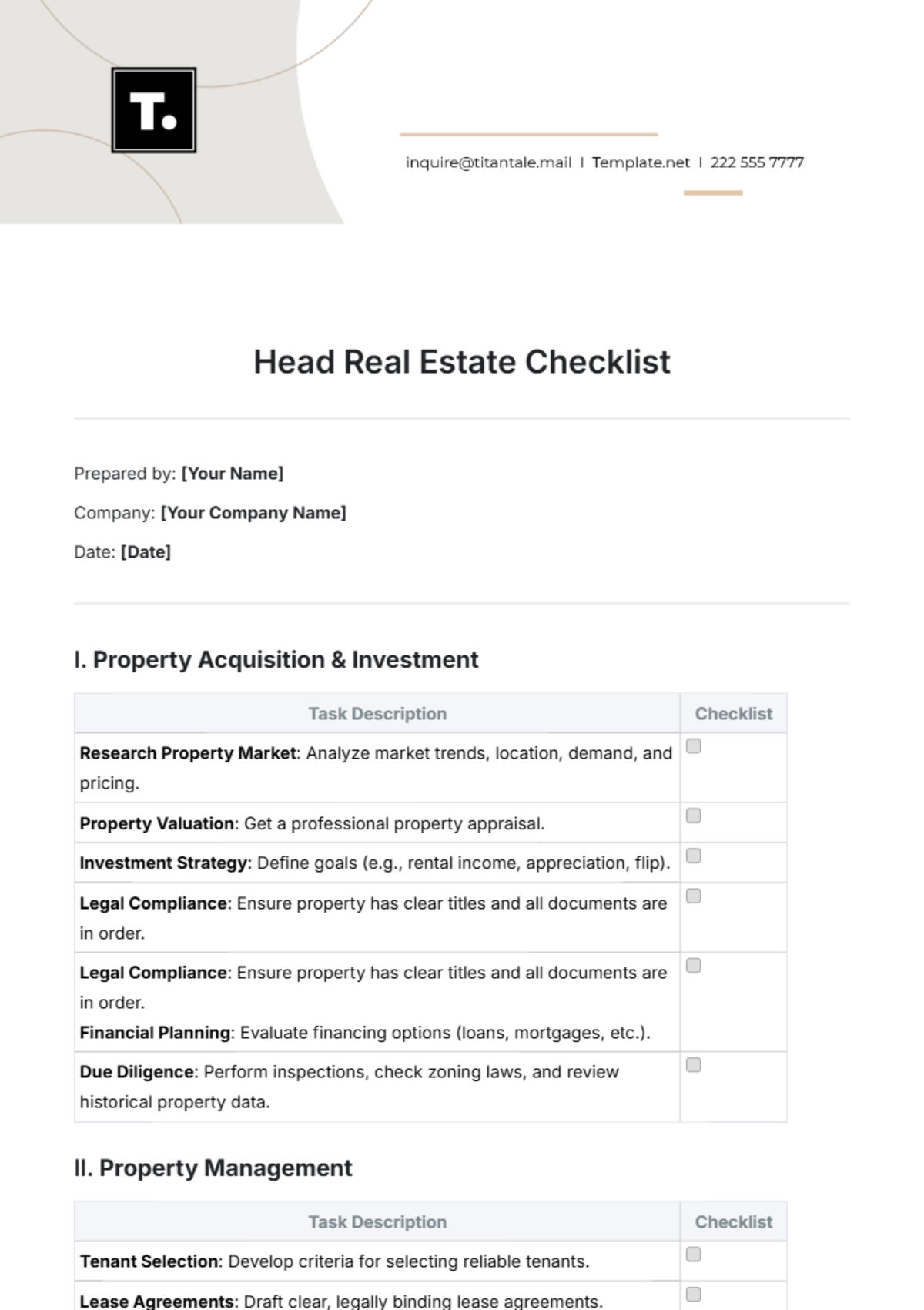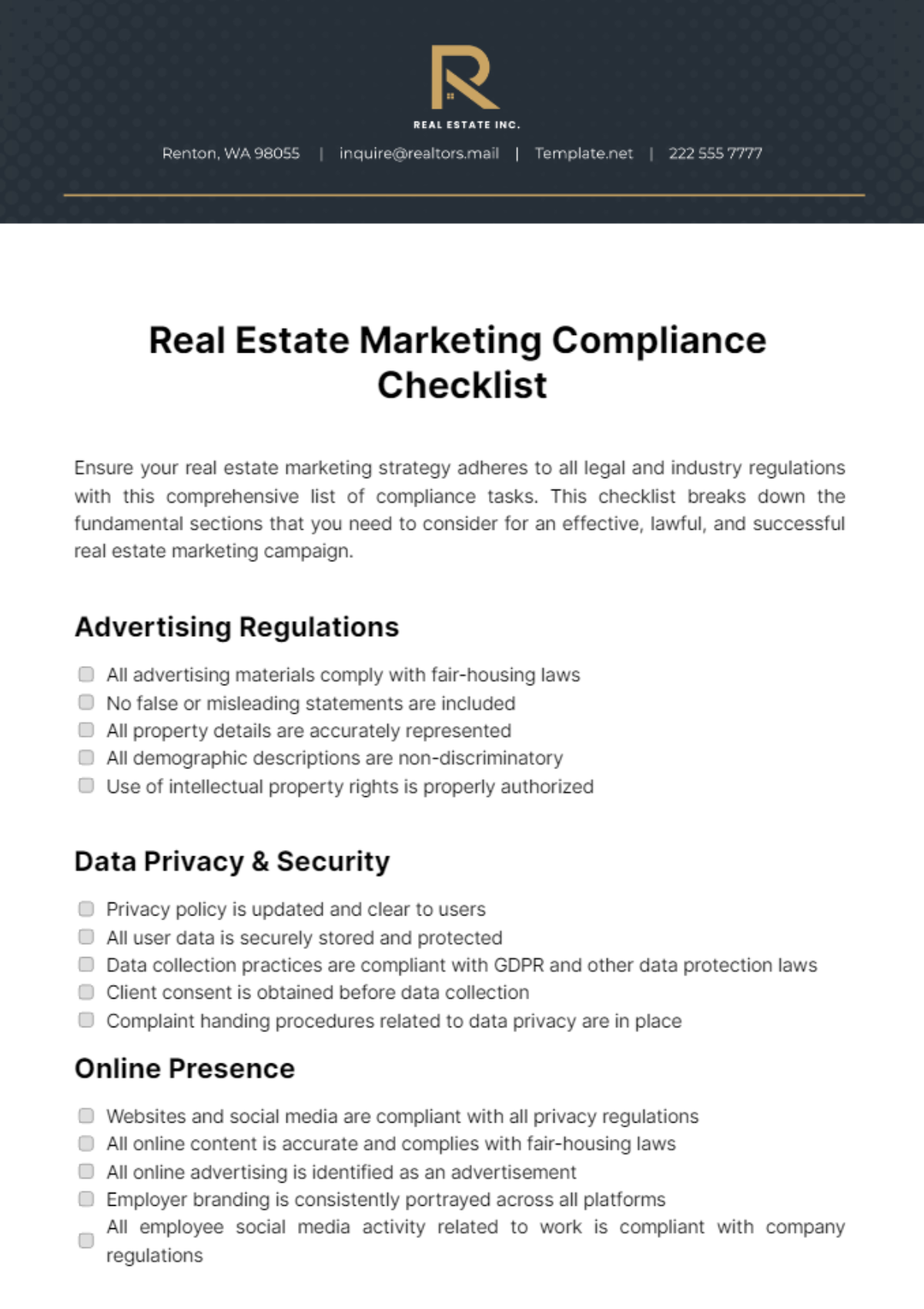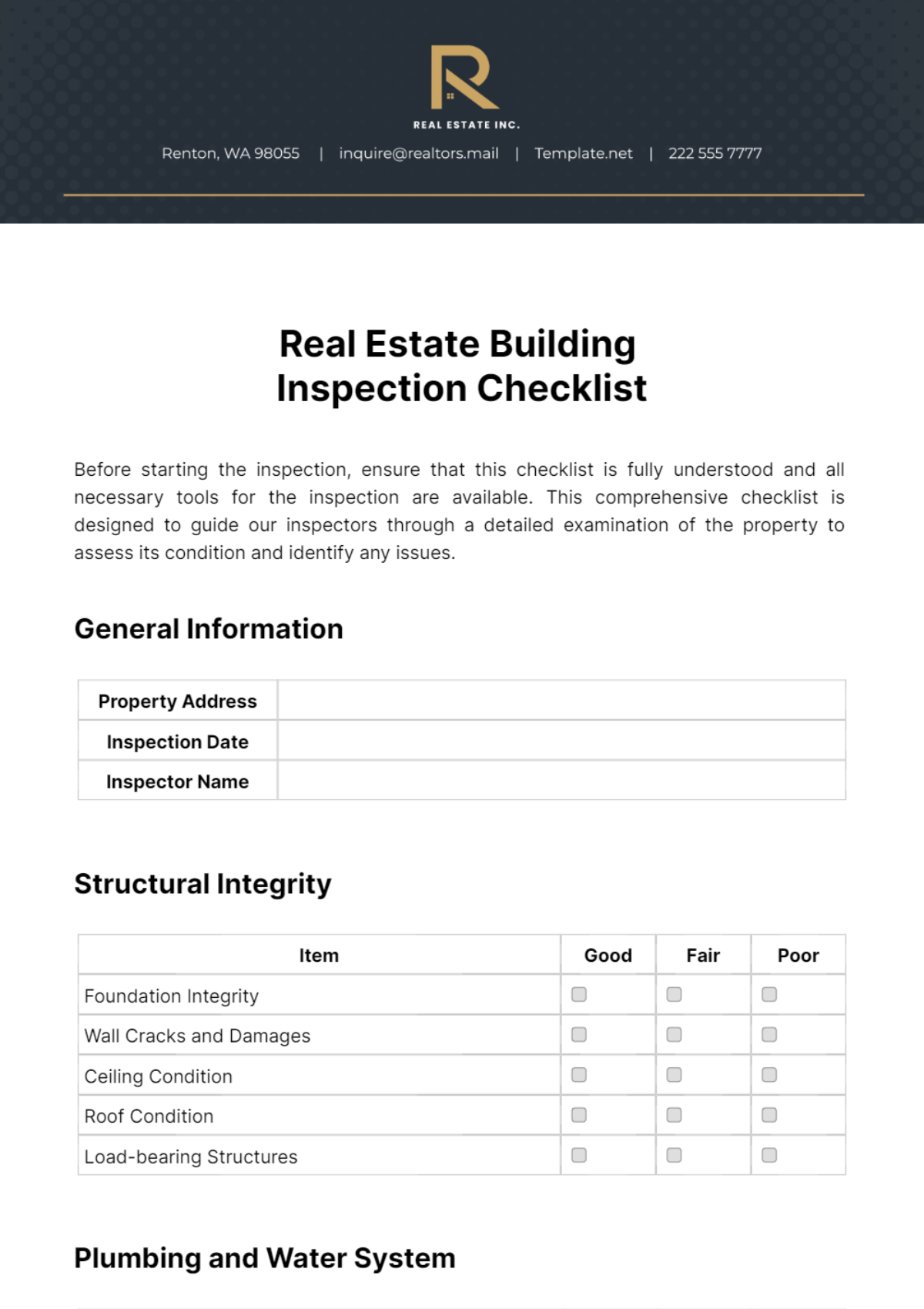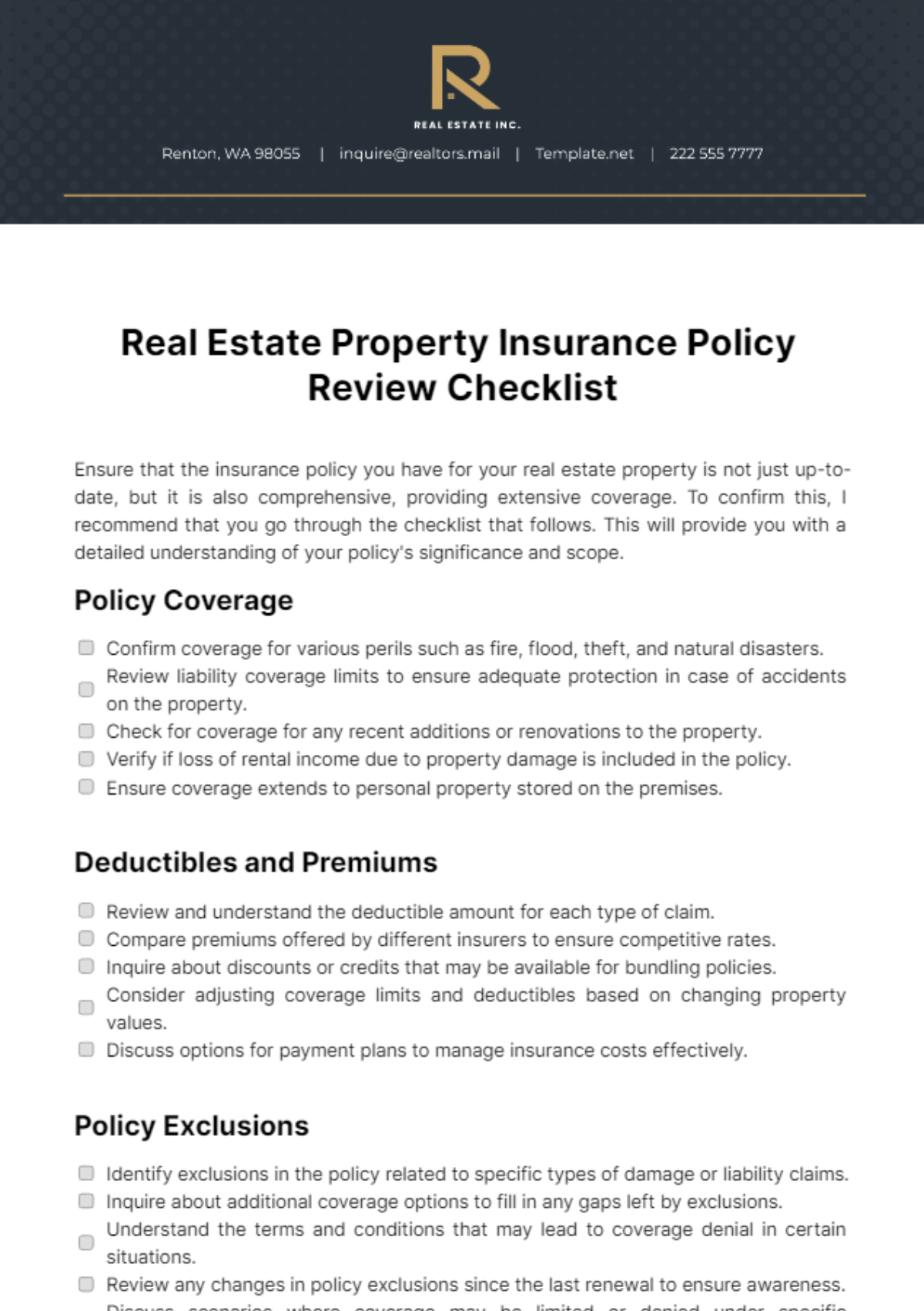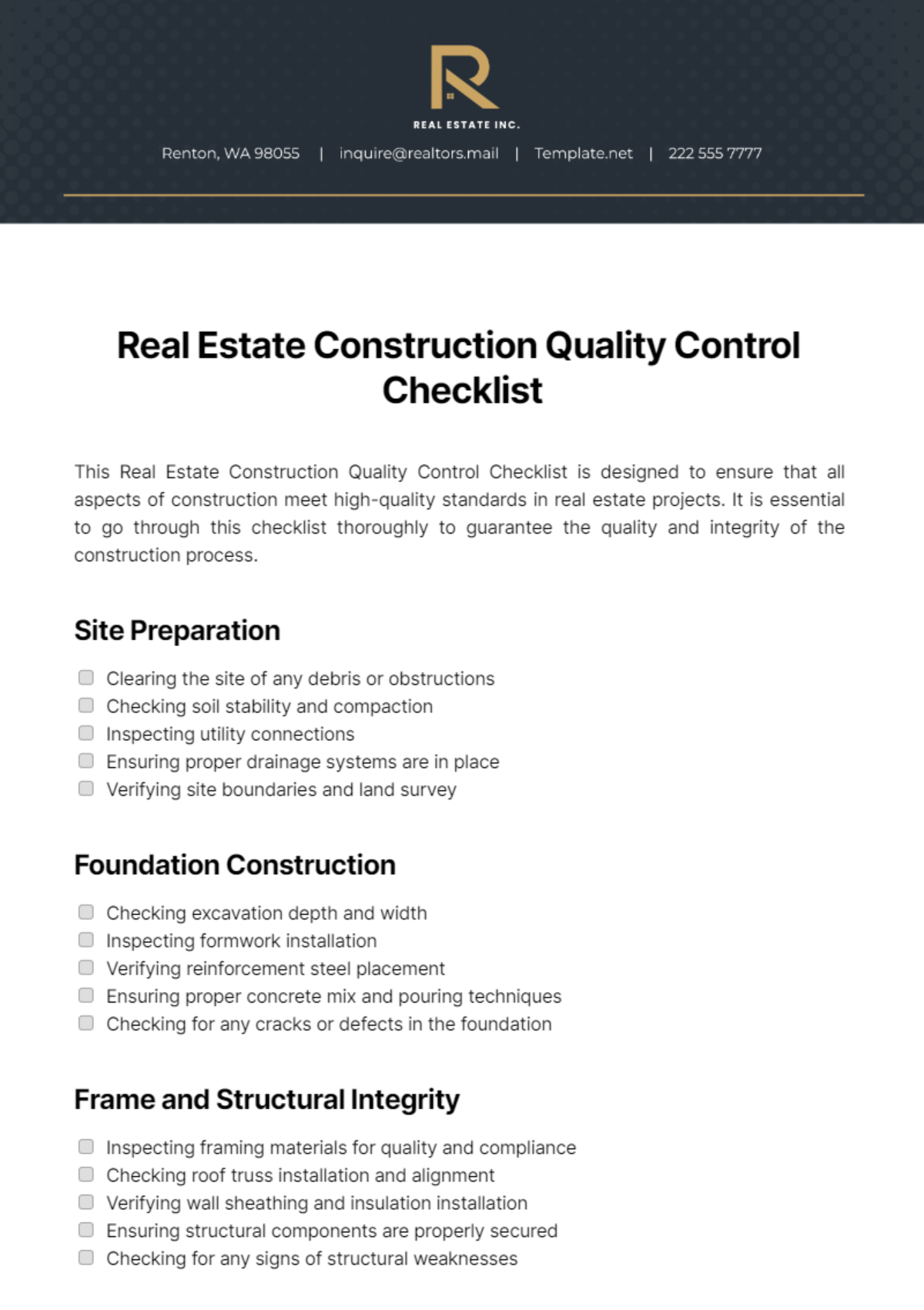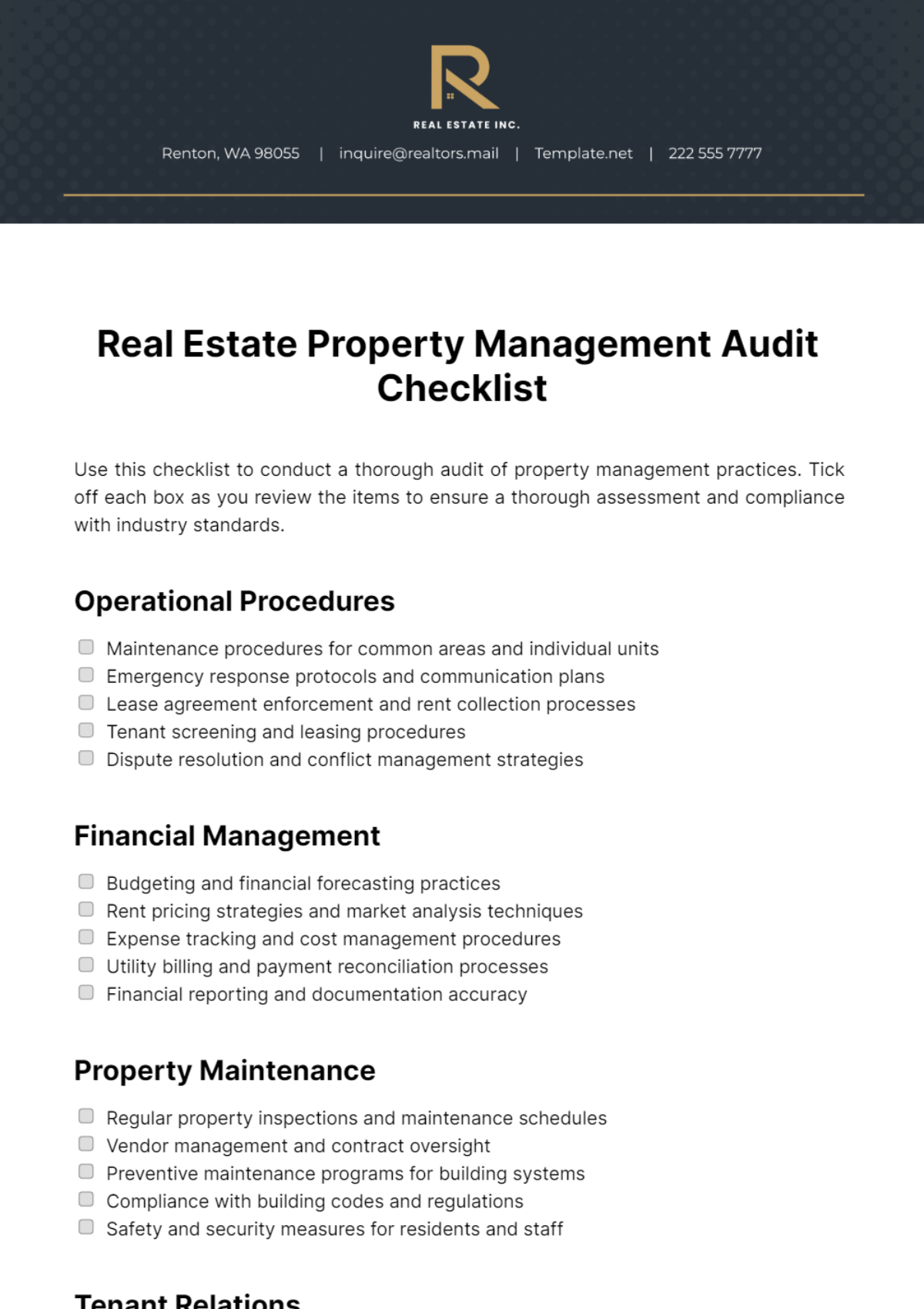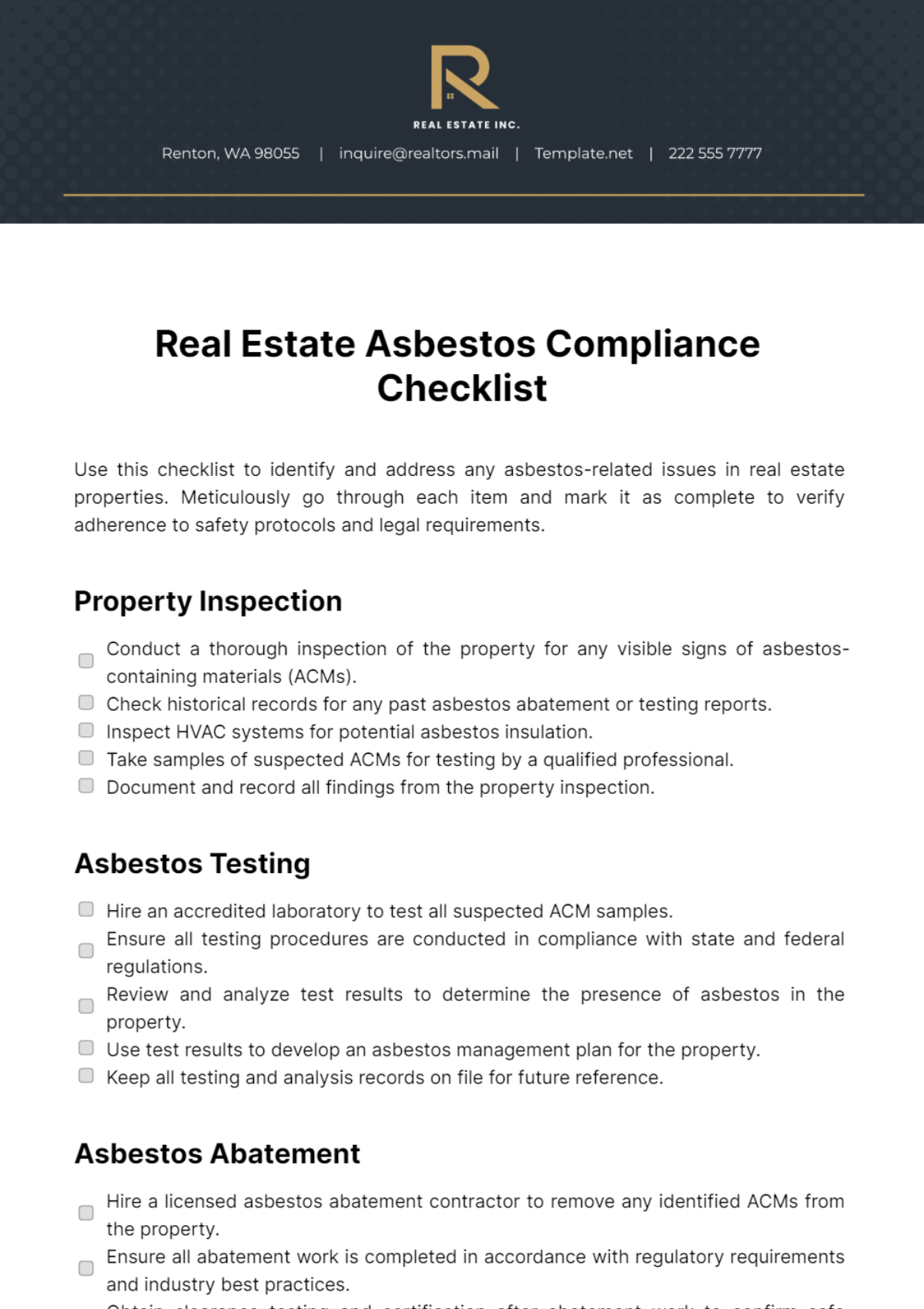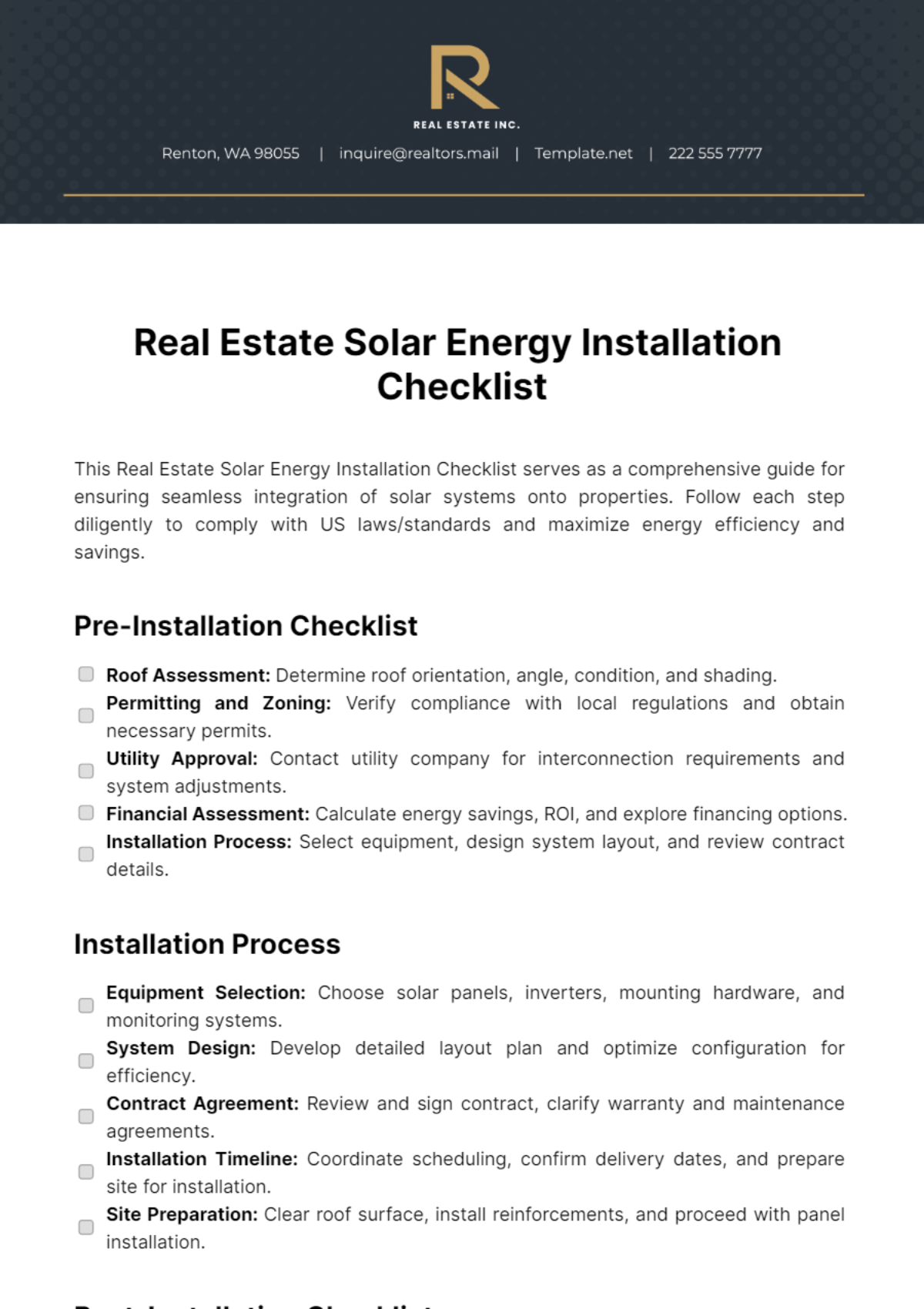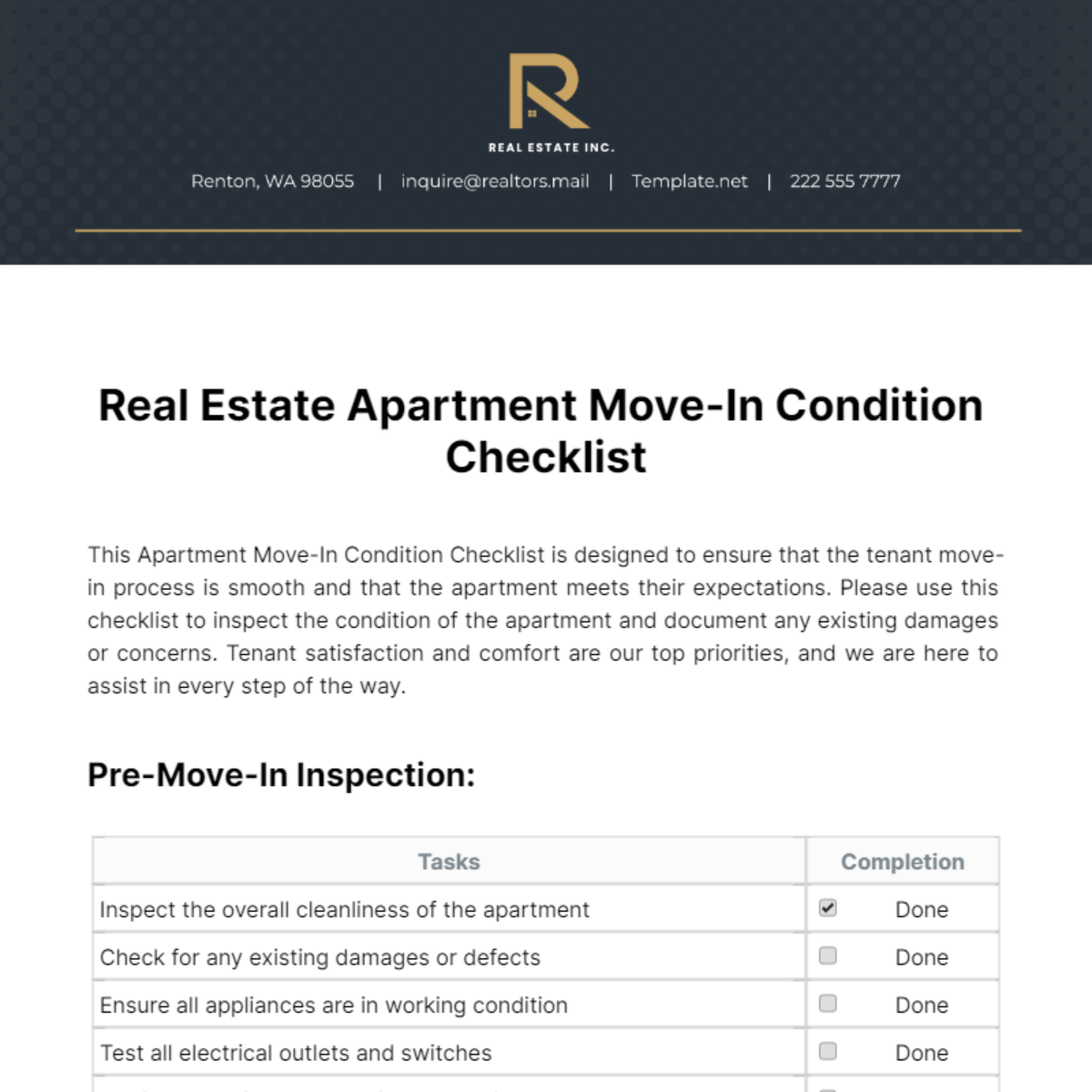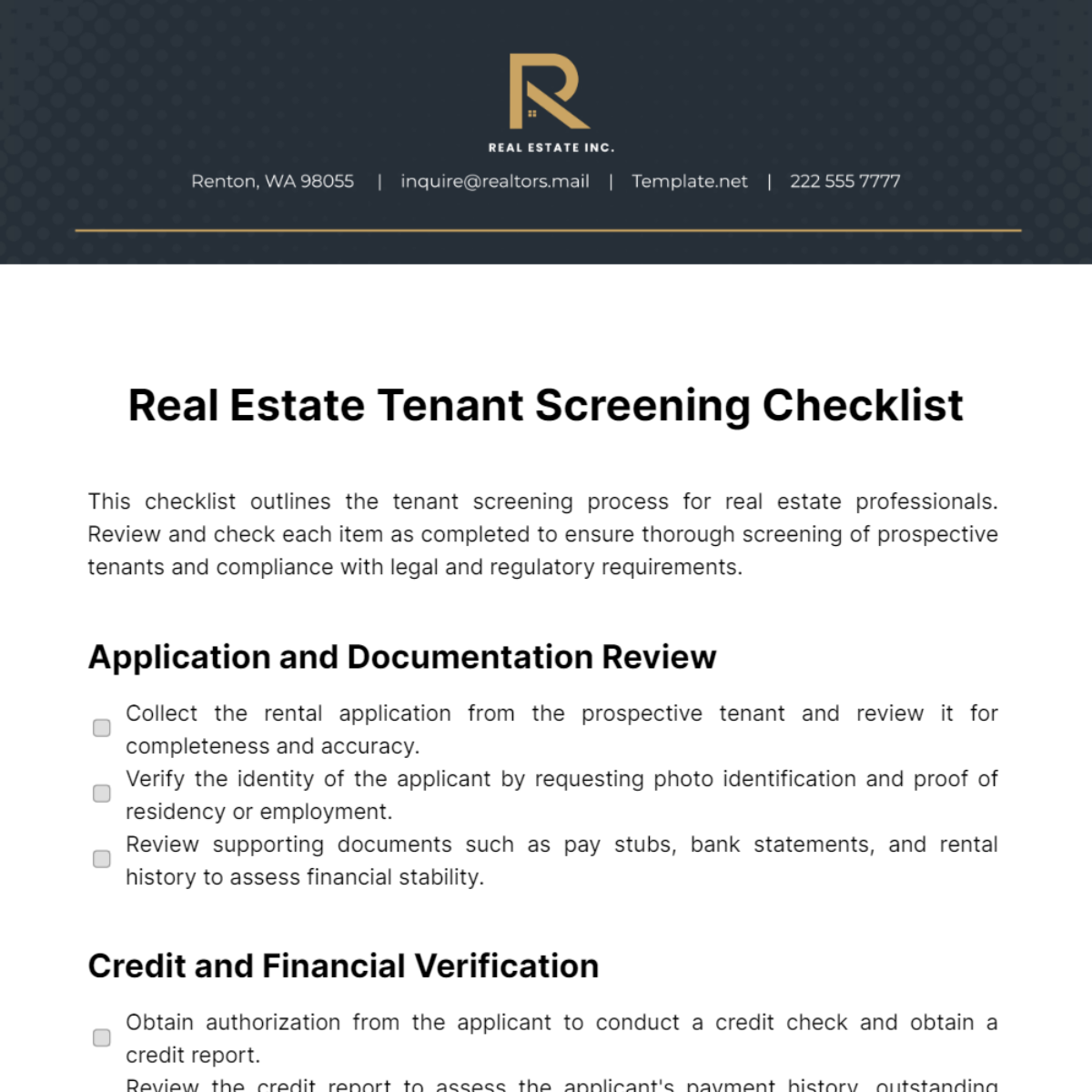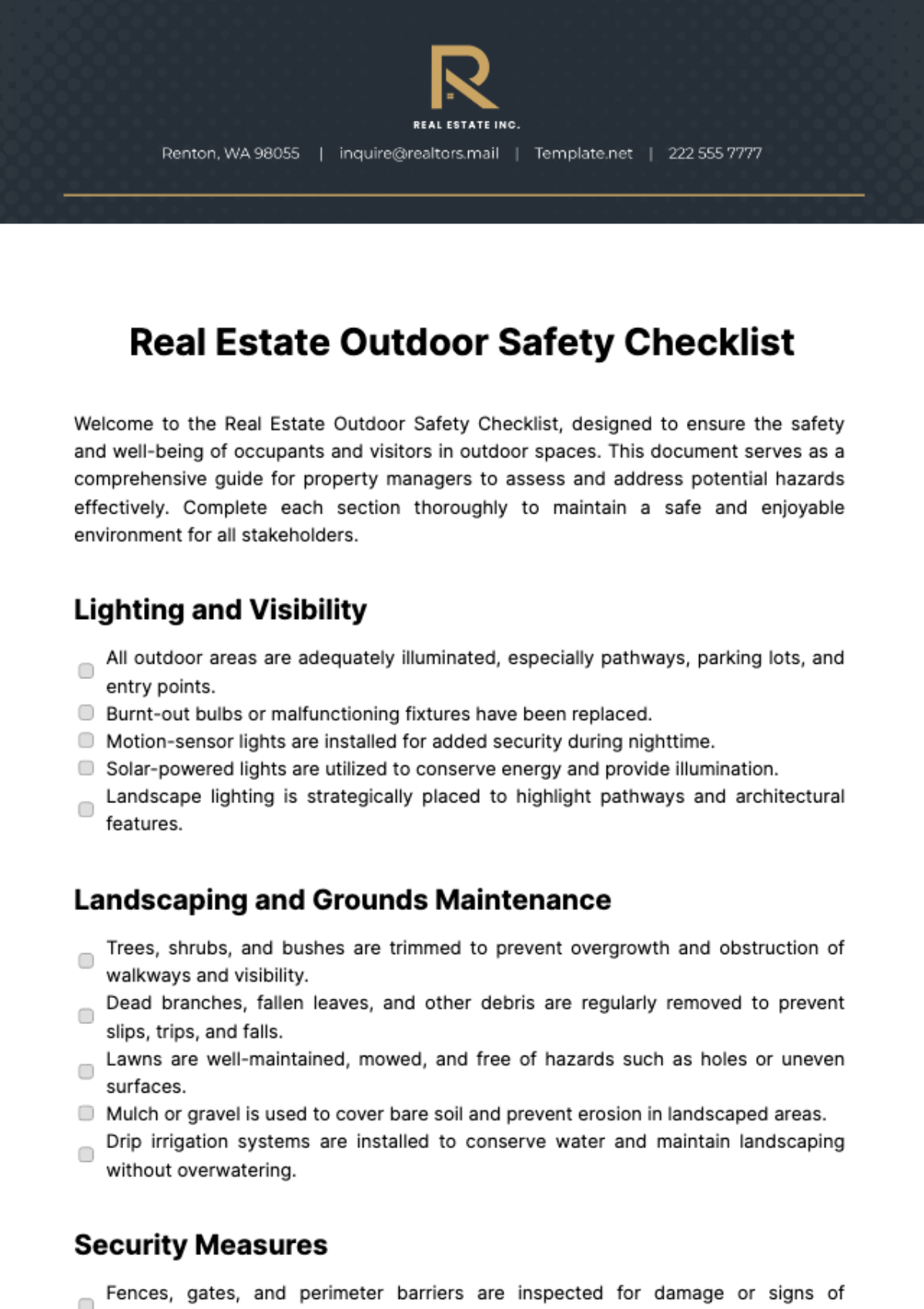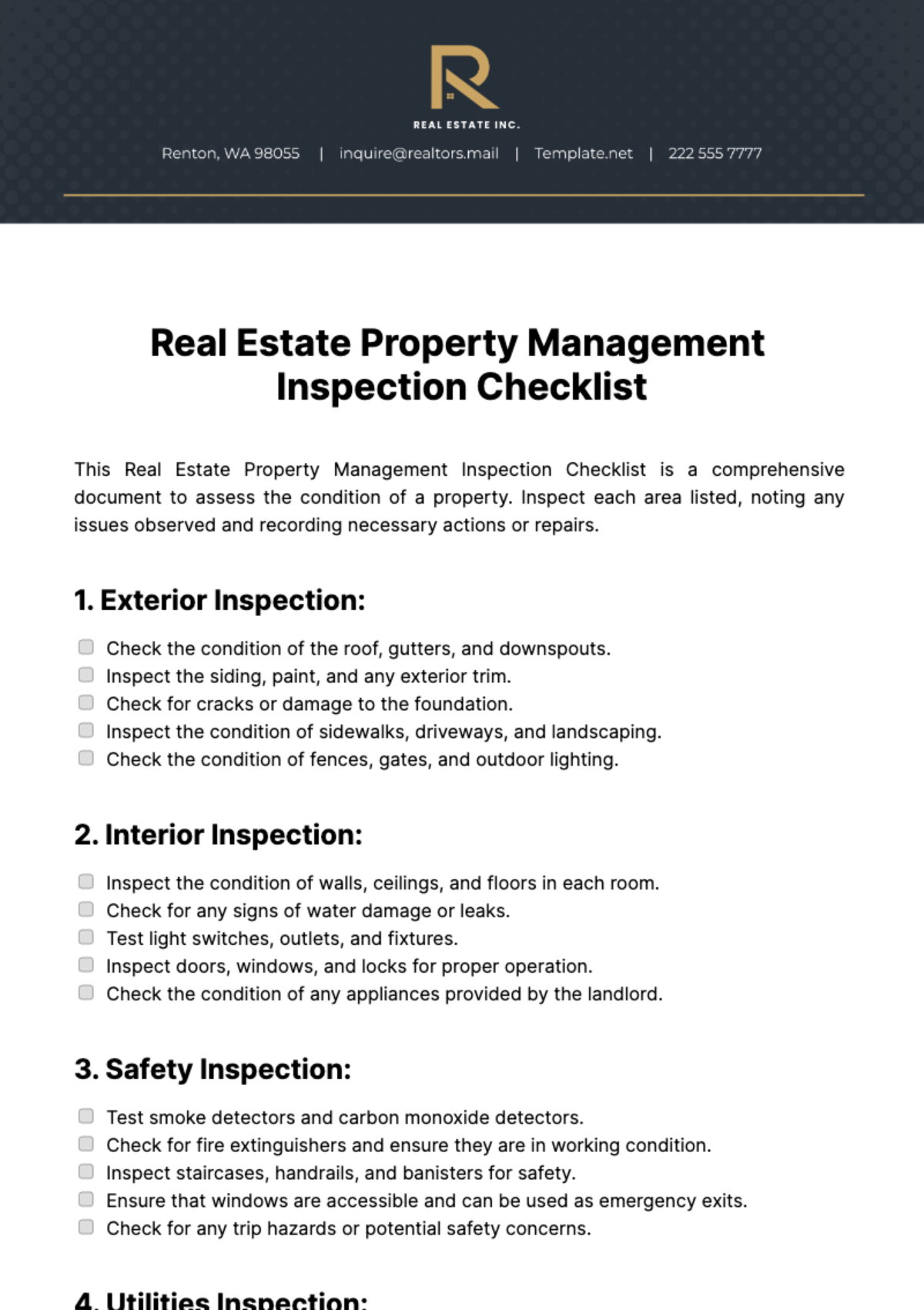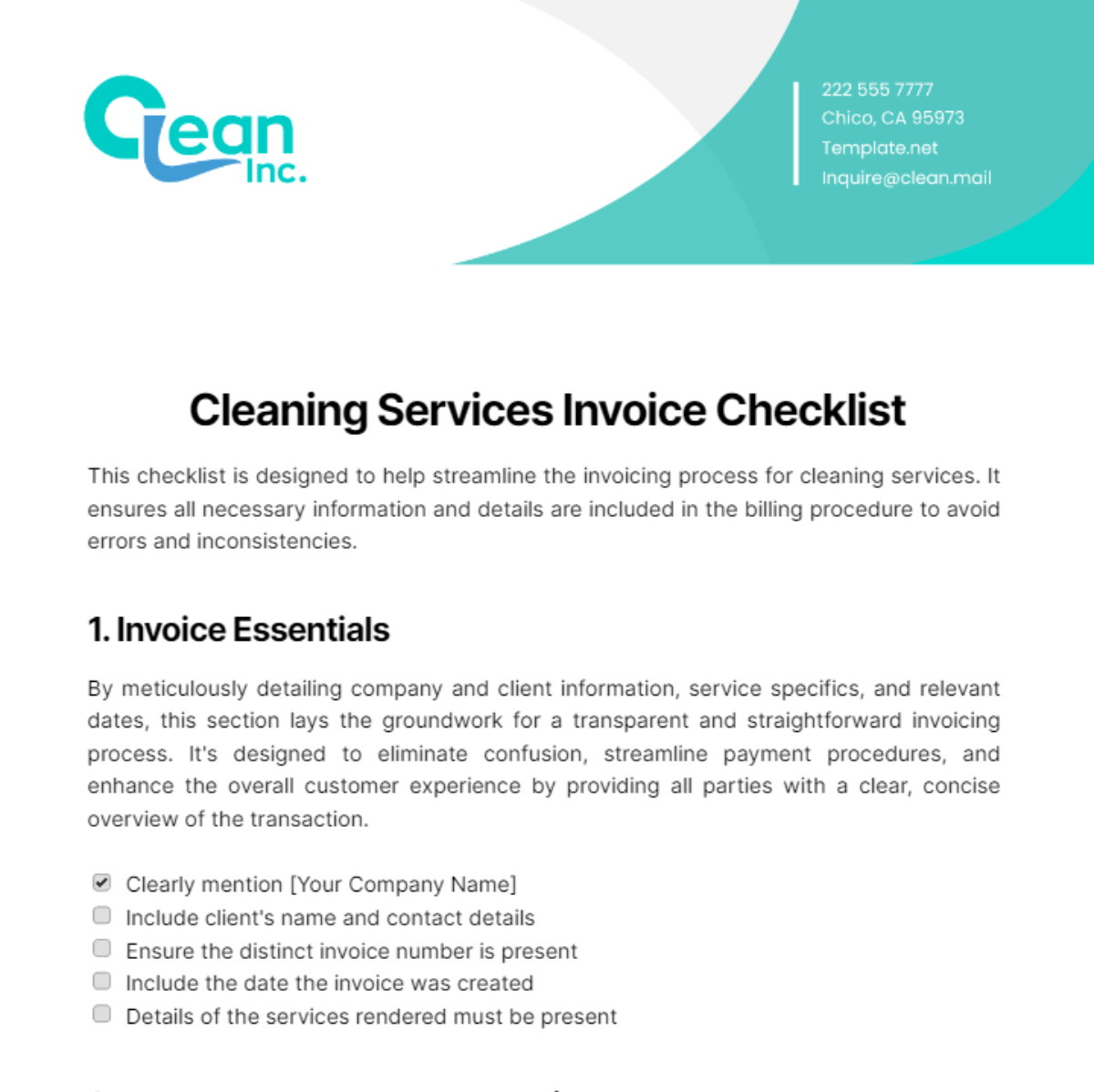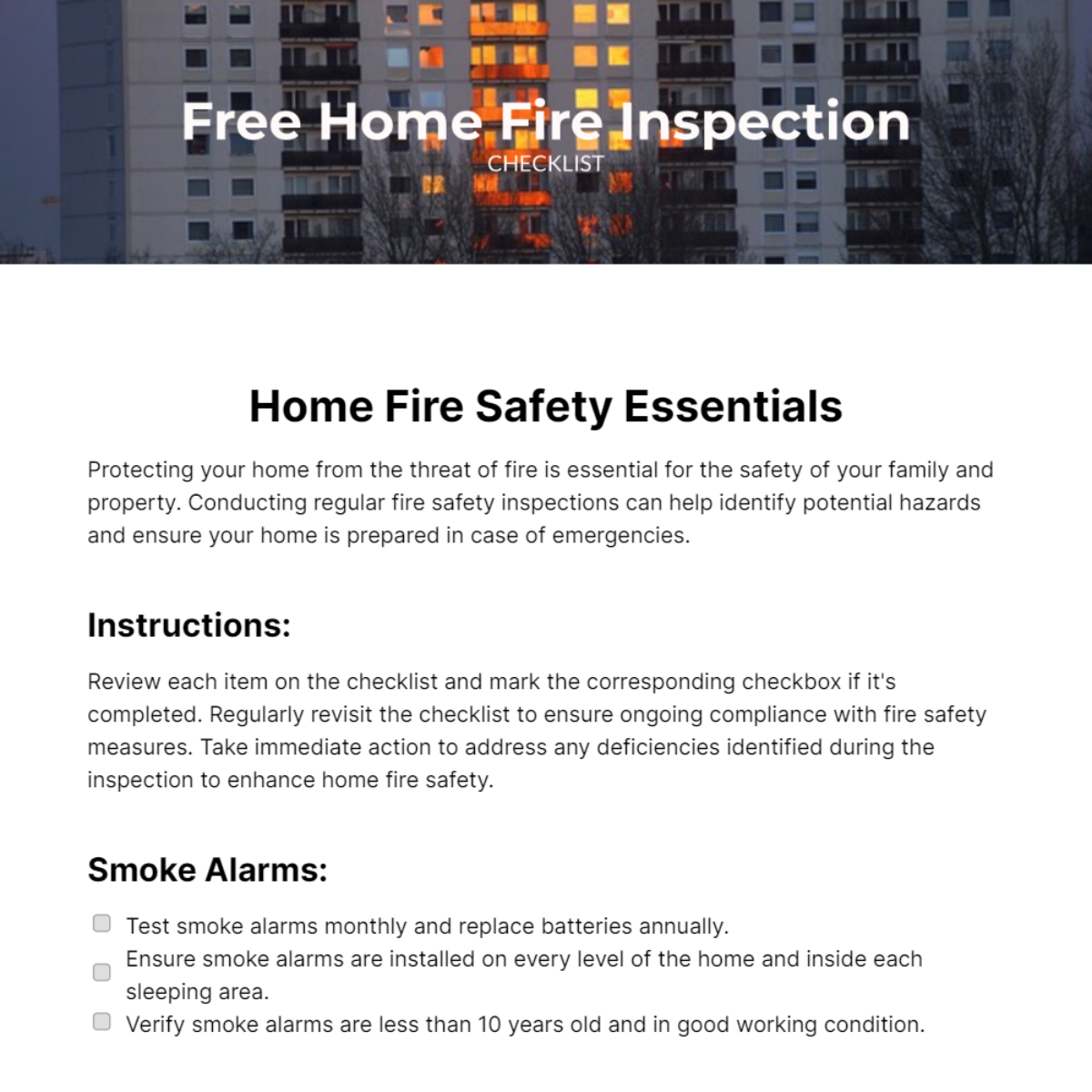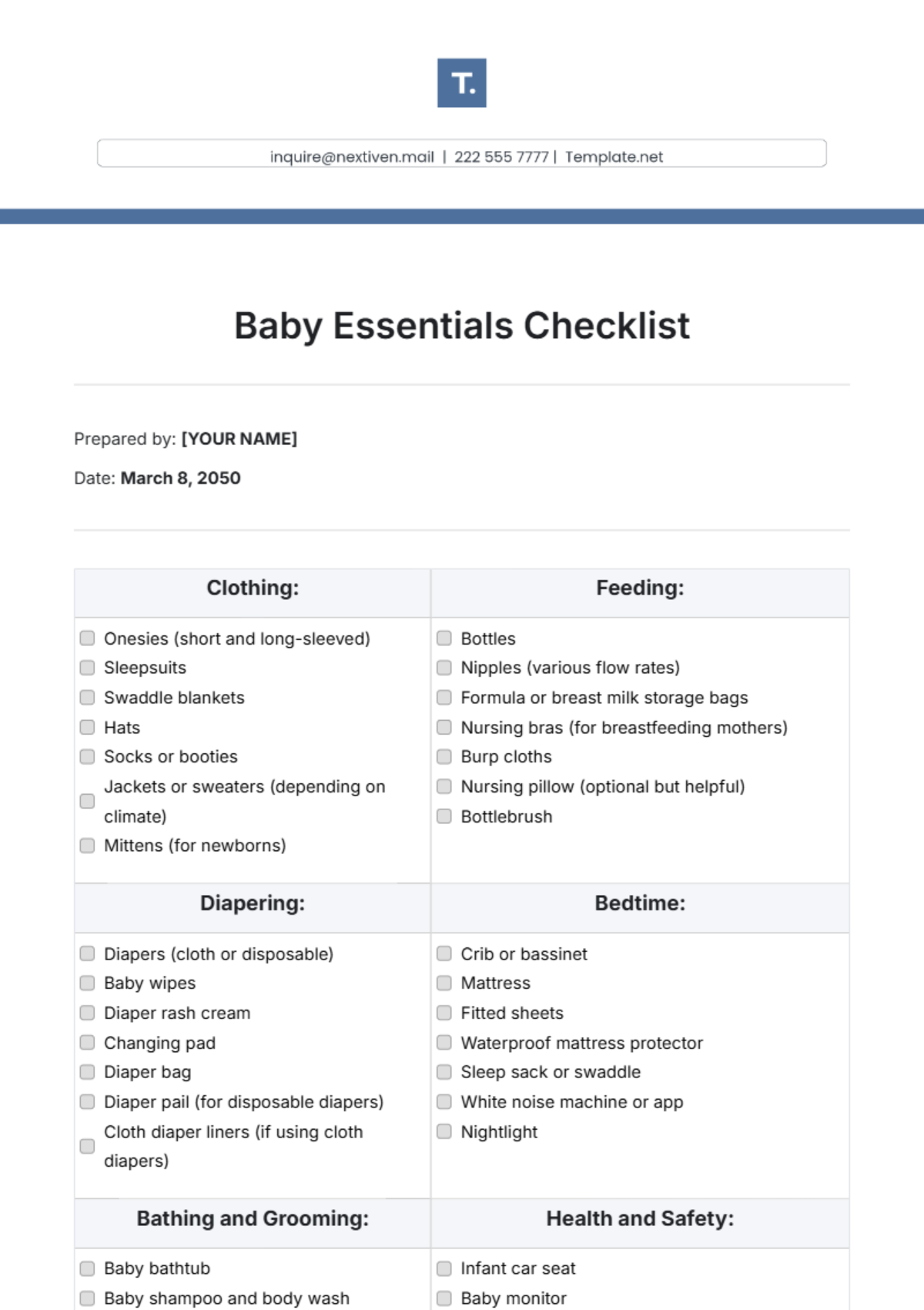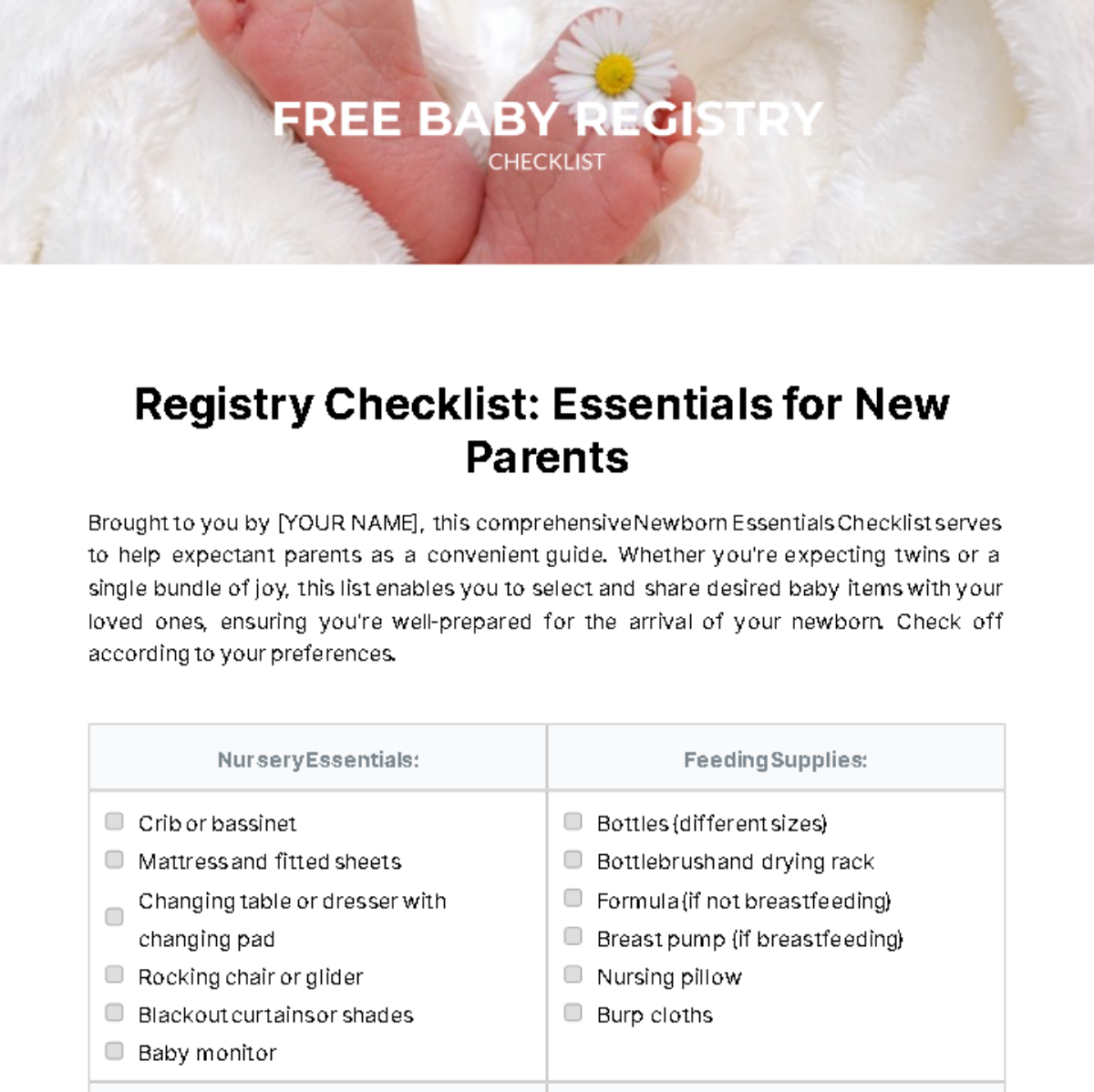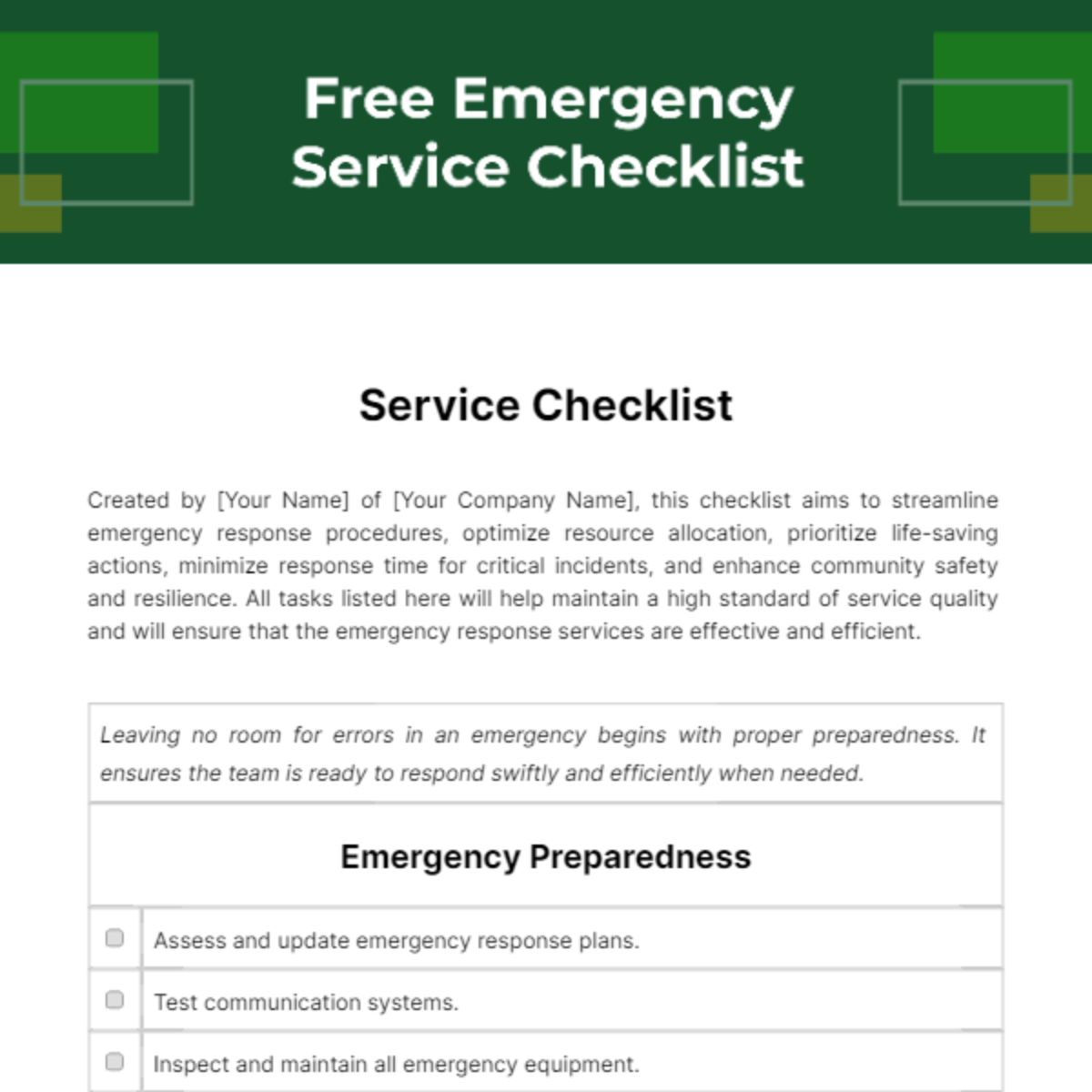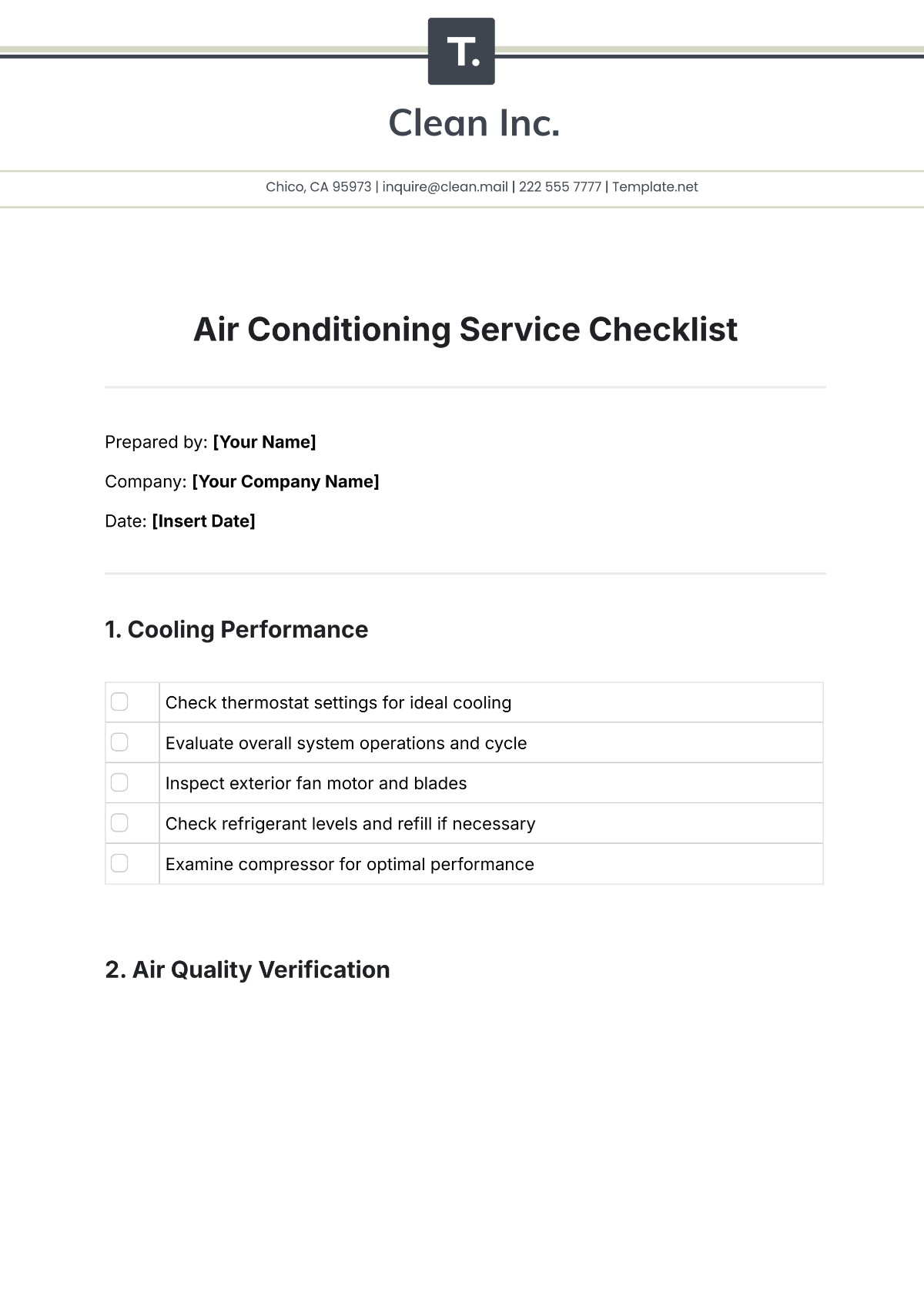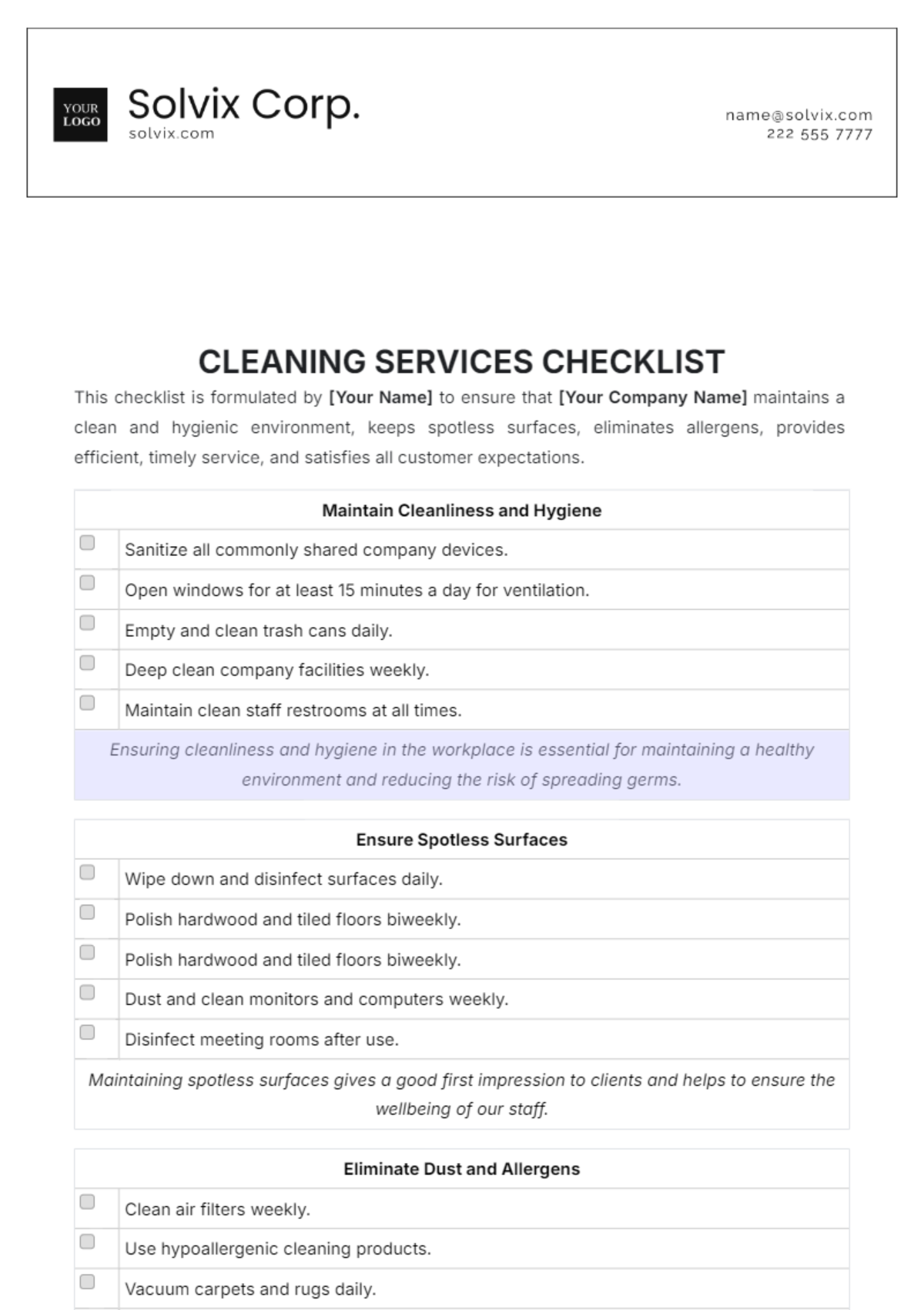Service Checklist
Created by [Your Name] of [Your Company Name], this checklist aims to streamline emergency response procedures, optimize resource allocation, prioritize life-saving actions, minimize response time for critical incidents, and enhance community safety and resilience. All tasks listed here will help maintain a high standard of service quality and will ensure that the emergency response services are effective and efficient.
Leaving no room for errors in an emergency begins with proper preparedness. It ensures the team is ready to respond swiftly and efficiently when needed. | |
Emergency Preparedness | |
Assess and update emergency response plans. | |
Test communication systems. | |
Inspect and maintain all emergency equipment. | |
Establish and rehearse evacuation procedures. | |
Train personnel in first aid and life-saving interventions. | |
Effective resource management ensures the right resources are available at the right time, increasing the efficiency of emergency response operations. | |
Resource Management | |
Monitor stock level of emergency supplies. | |
Arrange appropriate transportation resources. | |
Regularly update the resource list. | |
Schedule shifts to ensure 24/7 crew availability. | |
Develop plans for resource allocation during multiple simultaneous emergencies. | |
Efficient and rapid incident response is crucial to minimize risks and damages and save lives during emergencies. | |
Incident Response | |
Conduct initial incident assessment. | |
Activate the response team and develop incident action plans. | |
Ensure rapid dispatch of response units. | |
Implement appropriate life-saving interventions. | |
Provide timely updates and debriefings. | |
Elevating safety standards in the community and bolstering resilience helps reduce the risk of disasters and ensures communities can quickly recover when incidents occur. | |
Community Safety and Resilience Enhancement | |
Create and disseminate emergency preparedness guides for the community. | |
Organize community disaster drills and exercises. | |
Establish community response teams and train them. | |
Conduct hazard and risk assessments in the community. | |
Involve the community in post-disaster recovery and resilience-building efforts. | |

